
House hunt? Cash is king
Roughly a third of Berkshire homebuyers purchased their home with cash this year — the highest number in over a decade. Page 2


House hunt? Cash is king
Roughly a third of Berkshire homebuyers purchased their home with cash this year — the highest number in over a decade. Page 2
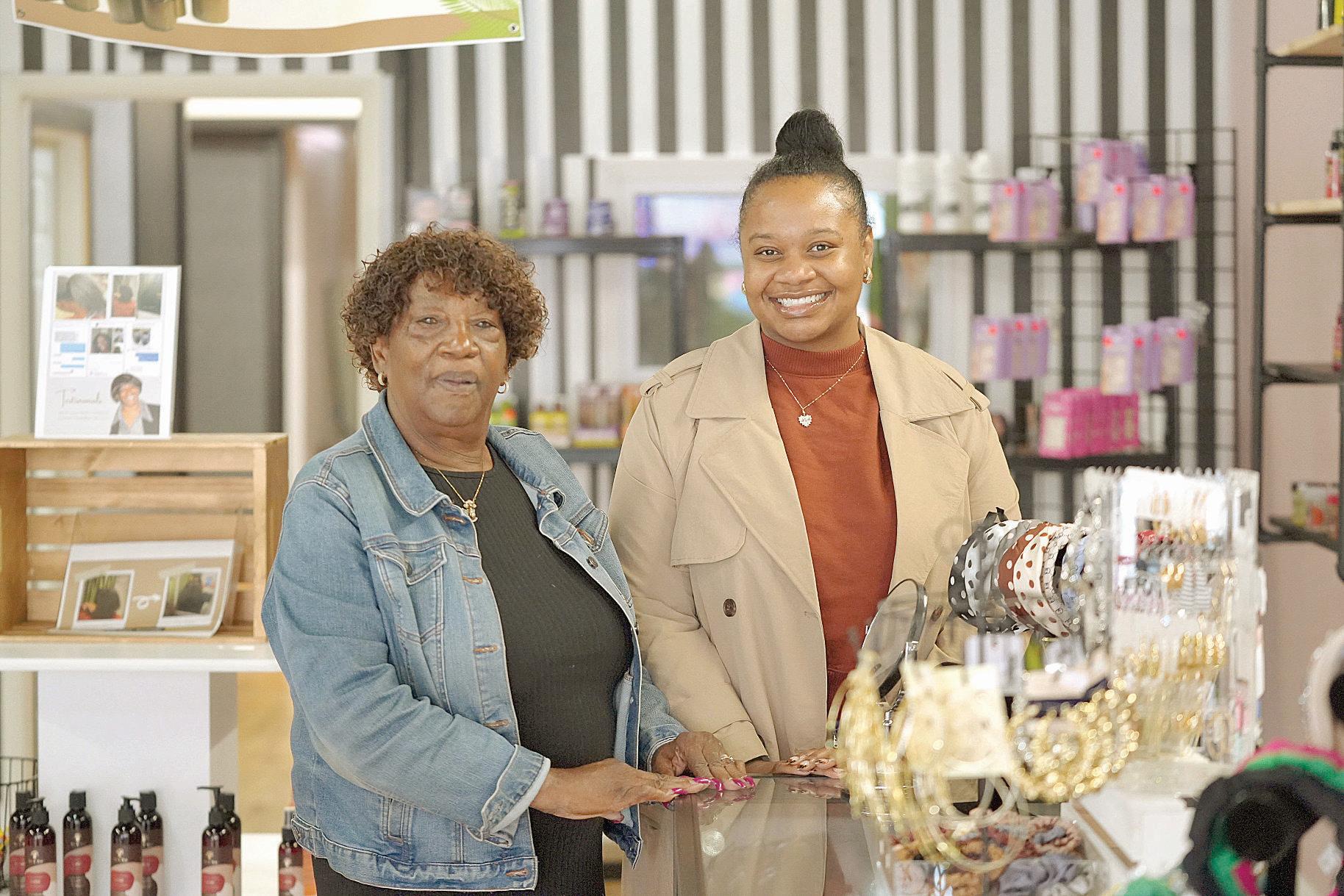
By Jim T herrien
PITTSFIELD — A modest grant program to stimulate small business growth and fill vacant storefronts along North Street is having a positive ripple effect throughout the downtown and beyond.
“I am looking back on it and feeling very proud of the work that we did as a group,” said A.J. Enchill, executive director of the Berkshire Black Economic Council, which sponsored the Vibe North Street initiative early last year.
Conceived when there were more than a dozen vacant storefronts along North Street, the program awarded grants of from
$7,500 to $25,000 for seed money, renovation work or other needs of the small business owners who stepped up to launch or expand on their dreams.
The grant money, which was awarded by the BBEC to five small business owners, was provided through MassDevelopment’s Transformative Development Initiative, Enchill said.
He said the BBEC consulted with Downtown Pittsfield Inc. and worked closely with Mass Development on the initiative.
WIDER IMPACT
“And as a result,” Enchill said, “What do they say: ‘A rising tide lifts all boats?’ We see the transformation of North
Street and other businesses really taking pride and shaping up and tidying up — either the exterior, through signage, or the interior through new equipment and tidier business spaces.”
He added, “And that was, I guess, an unintended consequence ... When businesses see other businesses taking it up a notch, they look inward and they say, ‘You know, I have got to take care of that thing I put off for a month and actually get it done, and roll up my sleeves and take my business in new direction.
“I think you can see that,” Enchill said, “and it is a really a beautiful thing to see. I feel like our city and downtown is alive again.”
Enchill said credit for positive changes along North Street also goes to existing businesses and organizations and several downtown initiatives like the Let it Shine! mural project that have added life to the community.
“I think there is so much to be proud of, and you just have to really take a part,” Enchill said, adding that the same spirit has spread to the Tyler Street business district and beyond.
Many landlords also contributed, he said, by considering new approaches and “not being set in their old ways.”
“I think there is a ripple effect to the broader community that deserves recognition as well,” he said.
DOLCE ROSE BEAUTY SUPPLY
Destiny Saunders, co-owner of Dolce Rose Beauty Supply at 305 North St., one of the businesses assisted by the grant program, would agree.
“It was amazing,” she said of the Vibe North Street initiative. “It allowed us to jump-start our business, then allowed us to open in our storefront.”
Previously, she said, “we were actually doing pop-up shops monthly in the store where we are located today.”
Saunders is the co-owner, along with her mother, Gloria Saunders.
“We offer one-stop shopping for hair care and beauty
For those without resources, market even more challenging
By C laire O’Callahan
In the Berkshires, roughly a third of homebuyers purchased their home with cash this year.
It’s the highest number in over a decade.
And it’s not just big-ticket houses that are seeing all-cash offers — those offers are fairly evenly distributed across the market, from houses priced from $100,000 to upward of $1 million.
“It could be anything. It could be at a first-time homebuyer level and it could be in the upper end, north of $1 million,” said Nick Geranios, Berkshire Board of Realtors president.
At a time when historically low housing inventory persists throughout the Berkshires and the average price of homes continues to climb, the ability to offer cash can ease the often challenging housing search process. With a cash offer in their pocket, a buyer has a competitive advantage that can lower costs and speed closings. They also avoid future expenses that come with other forms of financing.
But to reap those benefits, buyers must first have money.
Which leaves most prospective homebuyers, who don’t have $300,000 or $1 million sitting around, facing an even more challenging market. It is yet another refrain on how generational wealth, and disparities in who has been positioned to accrue it, continues to shape — or cement — the housing market.

According to data from the Berkshire Board of Realtors, cash purchases
number is up to almost one-third of all sales this past year.

How you plan today ca n impact your tomorrow It helps having a dvisors working in your best interests, one who ca n navigate through the complexities and nuances tha t at times, can be overwhelming f or most of us. Together we’ ll craf t a plan designed to meet your goals.
We’d like to hear your story, and tha t sta rts with a conversa tion.
To learn more, please contact Matt Freita g, CFP® VP-Financial Advisor at 413-243-43 31. www.octobermountainfa.com

for years.



A cash purchase is distinguished from other purchases by the type of financing the buyer leverages. When someone purchases a house with cash, they usually forgo taking out a loan and instead use their own funds to pay for the property in full.
Sometimes, the buyer elects to take out a mortgage after closing on the house, in a process known as delayed financing. Regardless, they must have the funds to pay the seller in full.
Rising mortgage rates have driven up the number of cash purchases nationwide in recent years. Earlier this year, the percentage of home sales financed with all-cash hit its highest since 2014, making up nearly one-third of sales.
In the Berkshires, cash purchases have made up roughly a quarter of home sales for years, according to data from the Berkshire Board of Realtors.
The area didn’t experience the 2014 spike seen nationally, but the percentage did grow during the pandemic, reaching 34 percent last year — the highest in over a decade. The percentage remains unchanged thus far this year, despite a 5 percent fall in residential sales.
Breaking out that number reveals that, while all-cash purchases are fairly evenly scattered across price ranges, they are most concentrated around the segment of the market where realtors see the highest demand: the “workforce housing range.”
So far this year, 51 percent of cash purchases have been made on houses priced between $100,000 and $499,999, according to data from the Berkshire Board of Realtors.
Twenty-seven percent were made on houses between $500,000 and $999,999, and 15 percent on houses selling for $1 million and higher.
WHY DO A CASH PURCHASE?
An all-cash purchase carries a number of advantages. The demonstrated ability to pay in full often gives the cash buyer a competitive edge over buyers using other types of financing. In a low-inventory market that the Berkshire Board of Realtors still categorizes as a sellers’ market, that edge can be a deciding factor in who buys a house and for what price.
An all-cash offer can also speed the closing process, and allows the buyer to skirt high mortgage rates and monthly payments.
In many seller’s eyes, a cash offer is appealing because it lowers the risk that the offer will fall through if the buyer is not approved for a mortgage.
“There’s probably a stronger negotiating position with cash versus a mortgage because you don’t take that risk of a time delay or appraisal not meeting the sales price,” said Paula McLean, this year’s Multiple Listing Service president. “It’s an easier risk for the seller.”
Cash purchases aren’t without their drawbacks. They tie up the purchaser’s money in an investment that often appreciates slower than other investments and is difficult to liquidate.
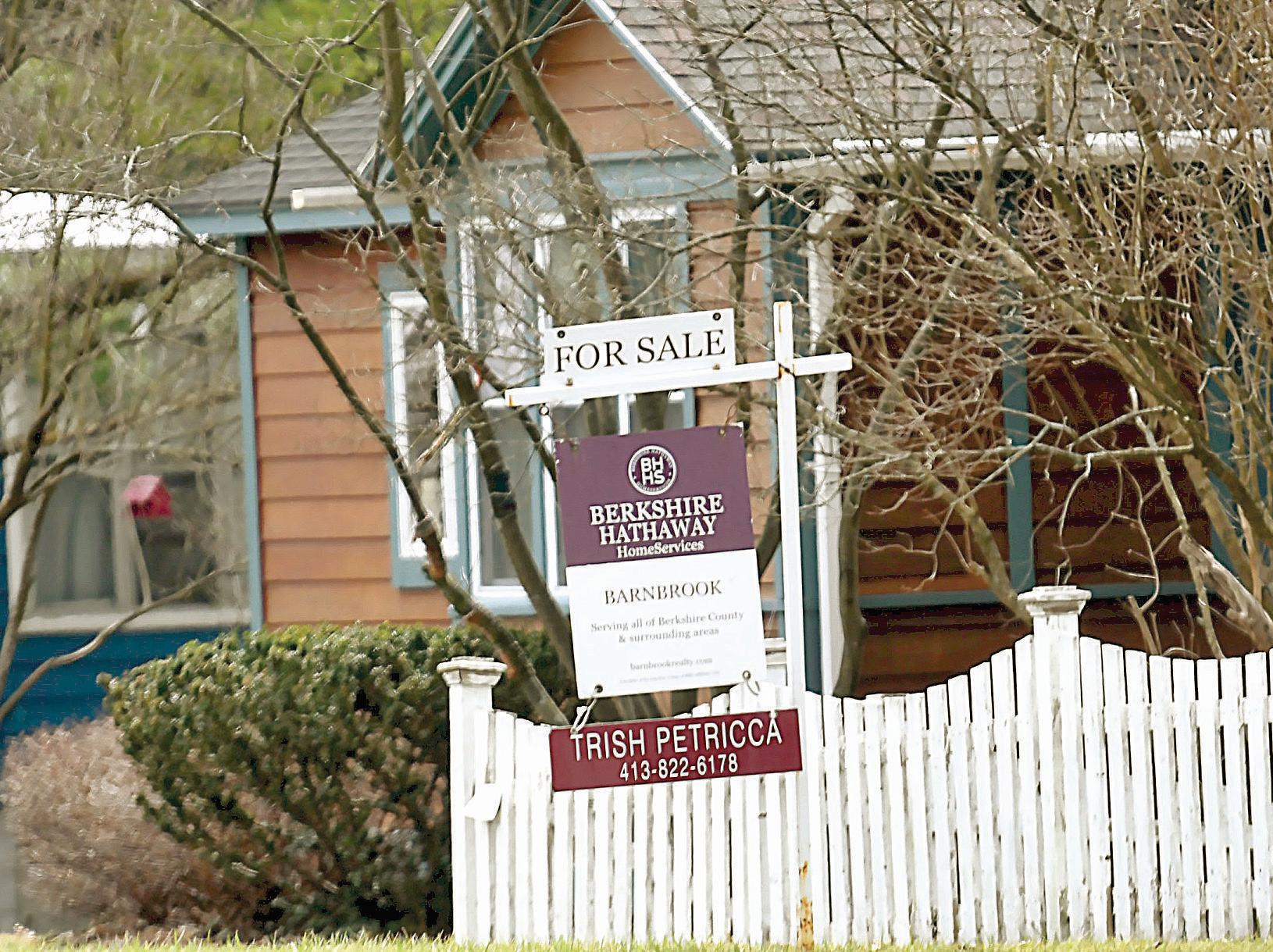
Weighing those advantages and disadvantages is a privilege that most homeowners don’t have.
WHO IS PAYING WITH CASH?
Paying for any property with cash requires a great deal of available funds. Those who do have the money at hand have often recently sold another property in a competitive market, inherited money or done well in business, said Corey Bishop, owner of Bishop West Real Estate Inc.
“I truthfully believe that there are a lot of people who’ve owned and sold. So they’ve had a lot of appreciation in their homes,” said Bishop. “They have some sort of story that’s got them the cash.”
For many, that story is one of generational wealth.
In the United States, homeownership has long been a key way to build financial stability that can be passed down from generation to generation in the form of bequeathed property or an inheritance from the sale of a house.
These benefits of homeownership have not been equally shared. Today, the racial gap in homeownership, driven by decades of redlining and other discriminatory housing policies, persists roughly unchanged from the 1970s, according to the U.S. Department of Treasury.
That gap informs which prospective homebuyers are now in a position to circumvent certain challenges of today’s housing market by offering all-cash.
Nationally, the highest number of all-

cash buyers are vacationers, followed by investors. However, the number of people purchasing primary homes with all-cash is on the rise. In 2003, just 10 percent of primary homebuyers were able to pay with cash. A decade later, 26 percent of buyers were able to make a full cash purchase.
All-cash purchases remain low among first-time homebuyers.
Here in the Berkshires, realtors said while they see all-cash purchases often, there is little logic to what areas of the county all-cash purchases are made or at what price range.
“I hate to say this, but there’s no real formula,” said Geranios. “There’s no rhyme or reason to it.”
WEDNESDAY, DECEMBER 4, 2024 10:00 - 11:30 AM


By C laire O’Callahan
What, exactly, is affordable housing? Who lives in affordable housing? How do they qualify?
When I started writing about housing three months ago, those were some of the first questions I asked. I’m still asking them.
How else is one to understand the planned development at the “Risingdale Ball Field” in Great Barrington or why the waitlists for subsidized housing number in the hundreds.
It occurred to me recently that while I’ve been writing about housing affordability for months, I haven’t stepped back to define what that means.
Let’s do that now.
The term affordable housing, at its most broad, expresses the following idea: People should be able to pay for housing and still have money left over for necessities like food, transportation and health care.
Under that definition, everyone needs affordable housing. A third grade teacher, a person experiencing homelessness and a bank CEO share, if little else, the need for housing that is priced at a rate affordable to them.
Of course, affordability is relative. What is affordable to the CEO of a bank is vastly different from what is affordable on the salary of an elementary school teacher.
To narrow this definition, people make a distinction between housing that is affordable with and without federal and state subsidies.
Sometimes, housing is priced at an affordable rate without the
contribution of federal or state dollars. Such housing tends to be priced lower because it’s located in lower cost markets where there is less demand.
Because they cost less than houses in other markets, such properties are the most vulnerable to market changes, said Central Habitat for Humanity CEO Carolyn Valli. They are often the first victims of gentrification and price increases when demand outstrips supply or an area becomes “more desirable.”
Many refer to this housing as “naturally occurring affordable housing,” although that term has received some pushback for obscuring the key role public policy plays in whether the private market provides housing that is affordable.
When interest in a locality grows and demand for housing spikes, that once affordable market can become unaffordable to many residents. If housing costs increase and salaries don’t, an unaffordability gap begins to grow.
That’s where federal and state funds come in.
Federal housing programs have their roots in post-Great Depression America. In the 1930s, mortgage insurance programs offering low down payments and long-term mortgages expanded homeownership. And investment in public housing improved living conditions for low income people who had access to it.
But those programs weren’t designed for the benefit of everyone who needed them. As the federal government increased housing stock, it also segregated
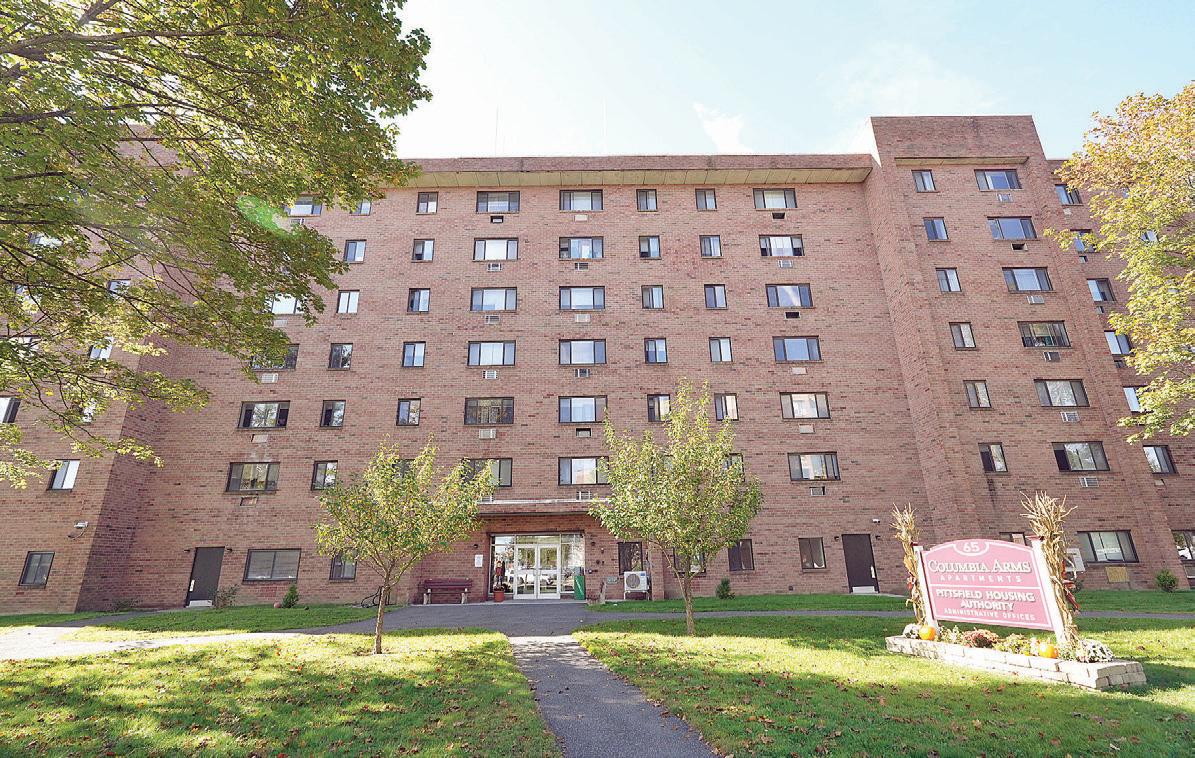
it, writes author Richard Rothstein in “The Color of Law.”
Black people were barred from living in new housing subsidized by the government and the Federal Housing Administration refused to insure mortgages in and near predominantly Black neighborhoods, Rothstein says. In the late 1960s, Congress passed an act limiting the percentage of income a public housing resident could pay for rent. Originally, the figure was 25 percent, it was later raised to 30 percent. Today, that 30 percent rule remains the gospel of personal finance, and the rule of thumb for affordable housing.
Housing is affordable, according to the U.S. Department of Housing and Urban Development, if a household does not spend more than 30 percent of
its income on housing costs, including utilities.
“Construct takes seriously the fact that no one should pay more than 30 percent of their income on housing. That’s the bottom line value for us,” said Jane Ralph, executive director of local housing nonprofit Construct.
The federal government offers various programs to make housing affordable to residents, including public housing and subsidy programs like the low-income tax credit, project-based vouchers and tenantbased vouchers.
Qualifications differ depending on the program, but a common metric used by federal programs and local projects that receive federal funding is area median income.
The Housing Choice Voucher, for example, is restricted to peo-
ple with very low income (making below 50 percent AMI) and a few categories of people with incomes up to 80 percent AMI.
Construct, which has received federal and state funds for its projects, caps many of its rentals at 60 percent AMI. Central Habitat works with families who make between 60 and 100 percent AMI.
Who in the community might qualify based off those metrics?
Take Pittsfield. At 50 percent AMI, an individual lives on a yearly income of $39,400. That’s within the salary range for a non-certified dental technician, an auto mechanic newly out of trade school and a public library technician.
An individual making a salary between 60 percent AMI ($47,280) and 80 percent AMI ($63,000) could be student police officer, a public library specialist or a teacher at Head Start.
Simply put, affordable housing is housing that a household can afford, while still paying for other necessities. When the housing listed on the market is not affordable to residents with lower incomes, it can be subsidized with state and federal dollars to close the gap between their incomes and housing costs.
In my reporting, I have decided to phrase it this way. When I write about “housing that is affordable,” I am referring to the general concept of housing that is affordable based on a person’s income. When I write about “affordable housing,” I am referring to public and subsidized housing.

GREAT BARRINGTON Pay Equity Coalition reports on progress
The Berkshires/Columbia Counties Pay Equity Coalition, made up of 18 arts and culture organizations, has released its second report showcasing progress made and remaining barriers, according to employers and workers themselves.
In June 2023, the Berkshire/Columbia Counties Pay Equity Project, then six arts and culture organizations, released its initial report, which told the story of how working in the arts caused financial hardships, mental hardships, trauma, and inequity. The report included original survey data, the voices of workers themselves, and concrete recommendations for employers.
Findings shared at a recent event included the results of two follow-up surveys to both employees and employers, case studies from the coalition of their journey of successes and challenges implementing report recommendations, and new regional and national benchmarking data.
GREAT BARRINGTON
CHP program offers on-the-job training
CHP Berkshires is accepting applications for its next class of medical assistant trainees, a paid, on-the-job vocational program for students interested in a career in health care.
Program completion qualifies students to sit for their certification as a clinical medical assistant, and the course includes a voucher for the cost of the certification exam.
The first class of medical assistant trainees is nearing completion at the CHP training facility in Adams. Participants are well on their way to full-time roles at CHP practices around the Berkshires.
To apply for the upcoming January program, visit tinyurl.com/4mbsjuy9.
The paid work-study program is funded as part of the Healey-Driscoll Administration’s $16.3 million investment in workforce development across the commonwealth. CHP received a portion of these funds to build a talent pipeline for its own workforce development initiative.
This program is accredited by the National Healthcareer Association.
PITTSFIELD
BRTA medical service for rural area seniors
The Berkshire Regional Transit Authority has received funding from the state Department of Transportation to offer a new pilot service of medical transportation for seniors in rural areas through June 30, 2025.
This new medical transportation service is for seniors, 60 years and older, living in the following rural areas: Florida, New Ashford, Hancock, Becket, Otis, Monterey, Alford, Mount Washington, Clarksburg, Savoy, Windsor, Washington
and Richmond.
Operating hours are 7 a.m. to 6 p.m. Monday through Saturday. Pricing is BRTA’s Non-ADA base fare of $7.50 and $2.50 for each additional town of travel.
For additional information about this program or any other program, or for an application, email the BRTA at info@ berkshirerta.com.
BMC, Fairview Hospital honored for heart care
Berkshire Medical Center and Fairview Hospital have received nine American Heart Association “Get With The Guidelines” achievement awards.
The hospitals received the honors for demonstrating commitment to following up-to-date, research-based guidelines for the treatment of heart disease and stroke, ultimately leading to more lives saved, shorter recovery times and fewer readmissions to the hospital.
The program helps ensure patient care is aligned with the latest evidence- and research-based guidelines.
As participants in the Get With The Guidelines program, BMC and Fairview qualified for the awards by demonstrating how each entity has committed to improving quality care.
This year, BMC received the following awards: Coronary Artery Disease NSTEMI Gold; Stroke Gold Plus with Target: Type 2 Diabetes Honor Roll; Heart Failure Gold Plus with Target: Type 2 Diabetes Honor Roll; Coronary Artery Disease STEMI Referring Silver; and Resuscitation Silver.
Fairview Hospital in Great Barrington received the following awards: Heart Failure Gold with Target: Type 2 Diabetes Honor Roll; Coronary Artery Disease STEMI Referring Silver; Rural Stroke Silver; and Rural Coronary Artery Disease Bronze.
GREAT BARRINGTON
Nonprofit Center hosting series of short webinars
The Nonprofit Center of the Berkshires is hosting a series of six short webinars on “Nonprofit Growth and Sustainability.”
Led by GrantStation President Alice Ruhnke, the webinars offer practical strategies for beginners, helping them with topics such as hiring grant writers, reading a funder’s Form 990, securing matching funds, creating grant policies and procedures, evaluating success, and calculating indirect costs of providing programs and services.
The series runs through Dec. 16. Each 45-minute session is recorded, and more than one person from an organization can attend. The cost of the six-webinar bundle is $60. Register online at tinyurl. com/5fvc337f.
For more information about upcoming offerings for nonprofits, visit npcberkshires.org.
By Sten Spinella
WILLIAMSTOWN
In a recent news release from Berkshire Health Systems, spokesperson Michael Leary said the decision was “driven by low utilization and pharmaceutical reimbursement rates.”
“Williamstown Apothecary patient prescriptions will be transferred to the Berkshire Community Pharmacy in North Adams,” BHS said, “with the availability of free at-home delivery or free delivery by mail.”
Staff affected by the closure will be offered new and similar roles with BHS, the
Angela Meglio recently passed the examination to earn the Certified Dog Behavior Consultant Certification through the International Association of Animal Behavior Consultants.
This credential consists of attestations from clients and colleagues, case studies written by the trainer detailing the process of behavior change with challenging client dogs and other questions which require attention to detail with written answers.
Prior to applying for the credential, the association recommends that applicants have a minimum of 500 hours of experience in animal behavior consulting, 400 hours minimum of related coursework, seminars and mentorships and a working knowledge of learning theory, counterconditioning, desensitization, training, husbandry, and additional in-depth knowledge of assessment skills and application of species-specific knowledge.
The association has 3,500 members and supports the highest standards for humane and ethical practices in the industry. For more information, visit iaabc.org
Meglio is especially interested in working with dogs who exhibit behavior problems related to fear, anxiety and stress. She works with dogs who have bite histories and other related aggression problems.
Meglio works with clients throughout New York, Connecticut and Massachusetts with concentration in Columbia and Dutchess counties in New York, New York City including surrounding boroughs, Berkshire County, and Litchfield County in Connecticut.
For information, visit angelathedogtrainer.com.
PITTSFIELD
Healthy Families earns
Healthy Families of Berkshire County was presented the Public Relations Award by the Children’s Trust at its annual Celebration Day in Boston.
The Children’s Trust is dedicated to ending child abuse and neglect in Massachusetts.
The Public Relations Award is given annually to a program that assists the Children’s Trust in getting the message of family support out to the public and demonstrates creativity, collaboration and relationship-building to engage legislators through participant stories and program impact.
Berkshire County Healthy Families, a free pregnancy and parenting program, was recognized for its annual child abuse awareness event, Step Up for Kids, held in collaboration with local state legislators.
Fifty-six pairs of shoes were displayed on the front steps of Pittsfield City Hall to represent the average number of confirmed child abuse and neglect cases in Berkshire County every month. Speakers included a former program participant.
GREAT BARRINGTON Golf event nets $50K for Fairview Hospital
Over 120 golfers from the area convened at Stockbridge Golf Club on Sept. 5 for Fairview Hospital’s 28th annual Golf Classic, which raised $50,000 to support the hospital’s equipment needs.
Golfers and volunteers enjoyed perfect fall weather for the mixed scramble format, which was followed by a post-play reception. The event provides valuable support for Fairview Hospital, Berkshire Health Systems’ 25-bed critical access hospital in Great Barrington.
Prizes were awarded to the top five gross and net teams.
In the net division, 2023 Champion Berkshire Bank defended its title (Ed Harvey, Jeff Harvey, Wenny Moony, Bob Coons). Second place: Unitech Sound (Jack Henault, William Dougherty, Shaun Wheatley, Julie Wheatley). Third-place: Emmett Schuster, Jeff Cella, Michelle Cella, Matt Risley. Fourth place: Obanhein Electric (Jim Obanhein, Kim Obanhein, Bill Barry, Lynn Barry). Fifth place: Party of Fore (Donna Wichman, Luke McDonnell, Joseph Soudant, Ray Briggs).
Gross division winner was Lee Bank (Chris Kinne, Jim Nejaime, Heidi Nejaime, Matt Freitag). Second place: Team Schoenfeld (Stephen Schoenfeld, Stu Berkowitz, Andy Consolati, Skipper Singer). Third place: Greylock Federal Credit Union (Sheila Labarbera, Bob Massetti, Tom Marchetto, Ken Lemme). Fourth place: Smith Watson (Bryon Sherman, Max Joiner, Jodi Hermanski, Jamie Esola). Fifth place: NBT Bank (Aidan Gilligan, Rich Cantele, Linda Cantele, Dr. Mark Taylor).

A free monthly publication by The Berkshire Eagle 75 South Church Street Pittsfield, MA 01201 Visit berkshirebusinessjournal.com for advertising information and to subscribe NEWS DEPARTMENT 413-447-7311 news@berkshireeagle com
ADVERTISING DEPARTMENT AMY FILIAULT, Advertising Manager 413-496-6322 afiliault@berkshireeagle com
CHERYL GAJEWSKI, Director of Advertising Sales 413-841-6789 413-496-6330 cmcclusky@berkshireeagle com
health system said.
The business was established after Williams College approached BHS with an interest in bringing a pharmacy and other services to the center of town. The apothecary opened in the fall of 2020, during the height of the coronavirus pandemic.
After consulting with members of the college community, BHS officials chose to present the pharmacy in the flavor of an old-time apothecary, with wooded shelving and a simple lineup of products.
The shop, at 72 Spring St., expanded access to prescriptions, over-the-counter medications and many other products in proximity to the Williams campus.
The Williamstown Apothecary opened in August 2020. The shop, which is closing next month, was intended to expand access to prescriptions, over-thecounter medications and many other products in proximity to the Williams campus. SCOTT STAFFORD
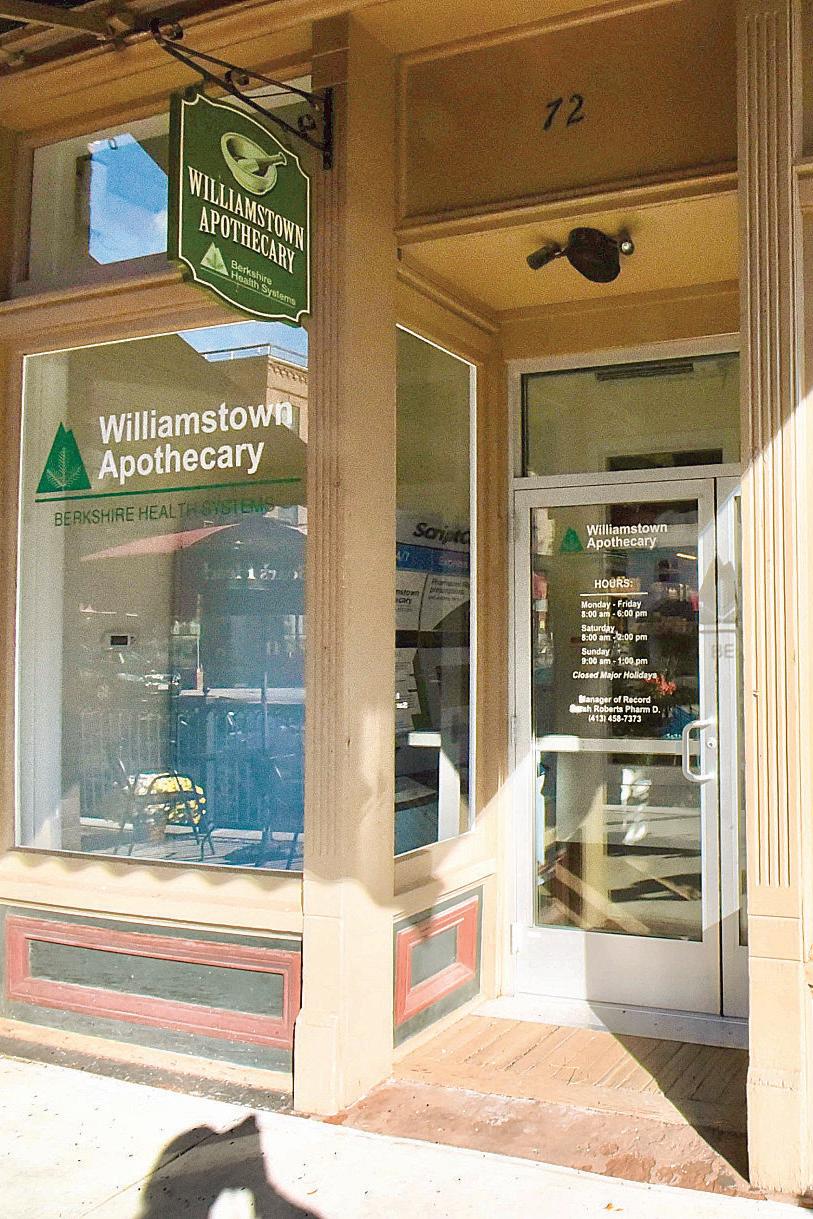
Share your news with the Berkshire Business Journal. If you have a company promotion, a new business or a new venture let the Berkshires know about it Remember the 5 Ws and that briefer is better Email text and photos to BBJ@newenglandnewspapers com. Provide your expertise in the Berkshire Business Journal. Do you have the answer to a persistent question about business and the Berkshires? Do you have ideas and suggestions on how our business community can grow? If you have a comment to make about doing business in the Berkshires or if you re looking to raise an issue with the business community, this is the venue for that We welcome letters up to 300 words and commentary up to 600 words Send these to BBJ@newenglandnewspapers com
Berkshire Business Journal is published monthly by New England Newspapers Inc 75 S Church St Pittsfield, MA 01201. Periodicals postage paid at Pittsfield, MA 01201. Berkshire Business Journal is delivered free to businesses in Berkshire County via third class mail. Additional distribution is made via drop-off at select area newsstands

By C larenCe Fanto
WEST STOCKBRIDGE — A restaurant isn’t just about the food, according to the owners of the town’s newest restaurant, Acqua al 2. It’s also about the experience.
“It’s a night out: entertainment, socializing with other people, enjoying an atmosphere, something different, just like a show,” said Valentino Pagliari, co-owner of the Florentine establishment at 3-5 Center St., which is now serving dinner five nights a week. “People can feel comfortable, enjoying a joke, getting to know the regulars, making them feel at home. That’s very important for me.”
Pagliari and his wife, Liza Stace Pagliari, hope to transport diners and their taste buds from the restaurant that formerly housed Rouge just off of Main Street to Italy, offering a menu with a reimagined Tuscan flair.
It’s a direct spinoff, technically a franchise, of Acqua al 2 — the business address (Via del’ Acqua 2) of the flagship restaurant in the capital city of Tuscany.
But how did they get from Italy to West Stockbridge?
“My family home in the Housatonic village of Great Barrington was a huge part of it,” Liza said. “We both really love the area and this town.”
“We love the culture and atmosphere of the area,” Valentino explained. “West Stockbridge is specifically appealing not just for its intimate community, but for its location. I want to be of service, an important part of the community. The aim is to serve quality food at a relatively good price and to be here for people to enjoy.”
Valentino purchased the building that had housed Rouge from its owner Maggie Merelle, a real estate agent, last January for $650,000, according to the Middle Berkshire Registry of Deeds in Pittsfield.
He said with the value of the business, the building’s furnishings, fixtures and equipment, and his renovations and reconfigurations, his investment totaled slightly north of $1 million.
After restoring the original double-door entrance, displaying the classic wood carving above the door, the restaurant had a soft opening on Aug. 7.
According to Valentino, the original Ac-

by Stefano Innocen
ti and appealed to theatergoers and show biz performers.
Valentino, a native of London and son of Italian restaurateurs, went to Florence to study architecture, and later owned a nearby late-night pub. In 1999, he discovered Acqua al 2 and soon became a partner in the venture.
“As West Stockbridge is located near so near to many performing venues, it seemed a perfect place to continue that tradition,” he said, citing The Foundry entertainment night spot around the corner and nearby Tanglewood.
The cuisine is a streamlined version of Innocenti’s restaurant in Florence, with his original recipes, Valentino said.
The highly flexible menu is based on an array of “Assaggio” (tasting) options: Five chef-selected starters such as pasta or gnocchi, three salads, a sampler of streaks, cheeses and desserts, as well as a selection of filet mignon and chicken main courses. An Acqua specialty is steak with blueberry sauce.
“You get to try a whole bunch of different things,” Valentino said. “There are a lot of options.”
Although the space eventually will accommodate up to 80 people, staff shortages are holding the nightly total of diners served to about 50 to 55 currently.
Starting next spring, outdoor dining will be available on a patio and at some point, lunch service may be added.
Valentino said he doesn’t see other restaurants as competition.
“If there were five or six restaurants here, it would be better for the town because they would bring more people in,” he said.
has
in the
Stockbridge is specifically appealing not just for its intimate community, but for its location,” said coowner Valentino Pagliari.
Left: Owners Valentino Pagliari and Liza Stace Pagliari have opened Acqua al 2 in West Stockbridge, a spin-off of a Florentine restaurant. Open for dinner Wednesday through Sunday from 5 to 11 p.m., it offers a flexible, multi-option tasting menu as well as steak and
What: Ristorante Acqua al 2, offering authentic Italian cuisine with a Tuscan touch. When: Dinner Wednesday through Sunday, 5 p.m. to 11 p.m.
Where: 3-5 Center St., West Stockbridge (formerly Rouge).
Menu: Tasting samplers of starters, salads, pastas, steak or chicken dishes, cheeses and desserts. Also main courses, wines, coffee, tea. Prices of samplers range from $18 to $59.
Information: https://acquaal2berkshires.com
Reservations (recommended): 413-232-5025 or by email: reservations@acquaal2berkshires.com



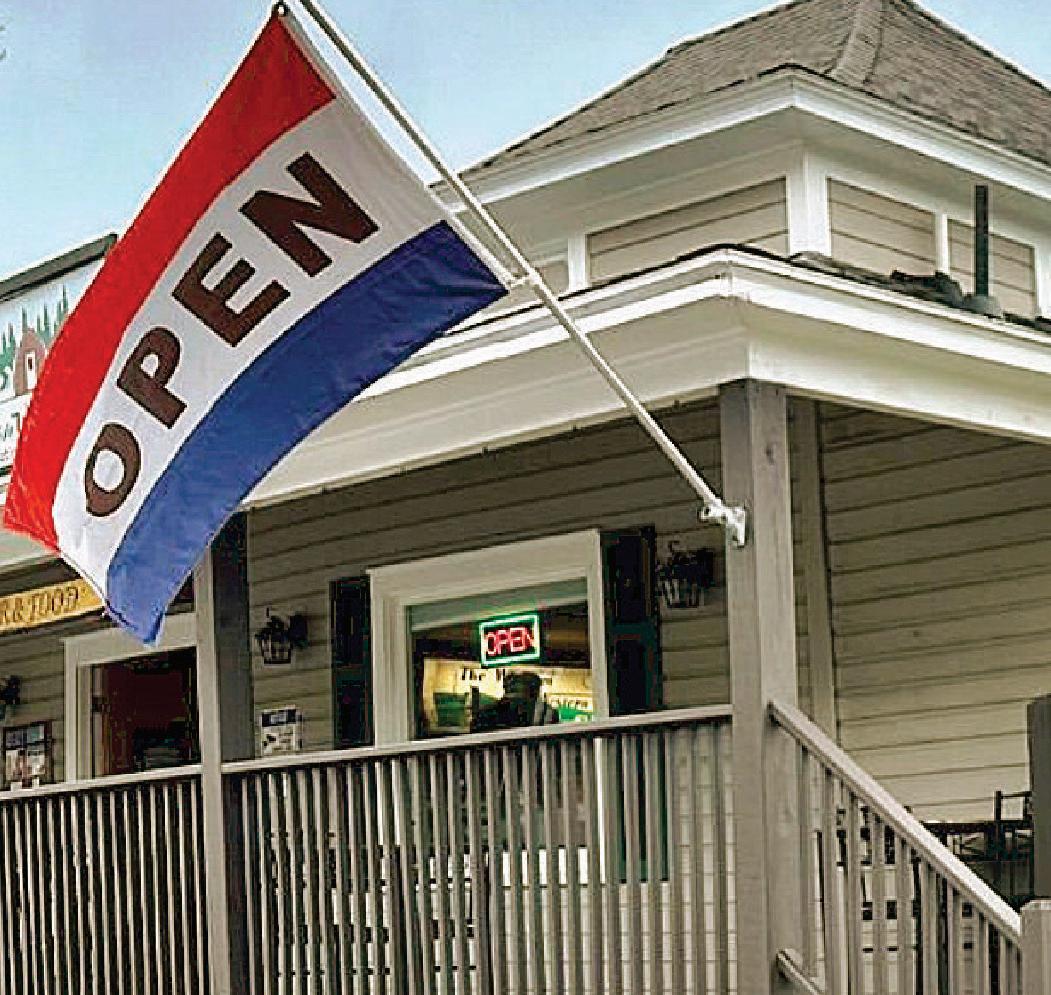

BY STEN SPINELLA
ADAMS
NORTH
— The Wigwam Western Summit shut down in late September, then roared back to life the next day — with new owners.
Just in time for one of it’s busiest weekends of the fall season for the multipurpose destination at the top of the Mohawk Trail. But the new owners, Alan and Kelly Scofield, had a little help serving the FreshGrass music festival crowd.
Former Wigwam Western Summit owner Lea King pitched in throughout the weekend, with King helping to train the new owners.
The pairing was an ideal match.
King and Gelinas, who during their seven years of ownership transformed The Wigwam into the destination shop, drink and stay spot it is today, sold the retail business, a cafe and lodging — four cabins, a lodge and an apartment — for $1.35 million. The asking price was $1.5 million. All furniture, furnishings, tools, websites, phone numbers, vendors, bakers, fudge makers and local crafters are included.
“We feared the wrong people getting it,” King said of selling the Wigwam. “The whole thing changes purpose if it becomes like a mansion for a wealthy couple, or a cannabis operation. All of those people were interested. If you could write down dream people, it would be a couple who are passionate, who love the place. These two knew about the property before we even bought it.”
The Scofields have both worked for Marriott for decades





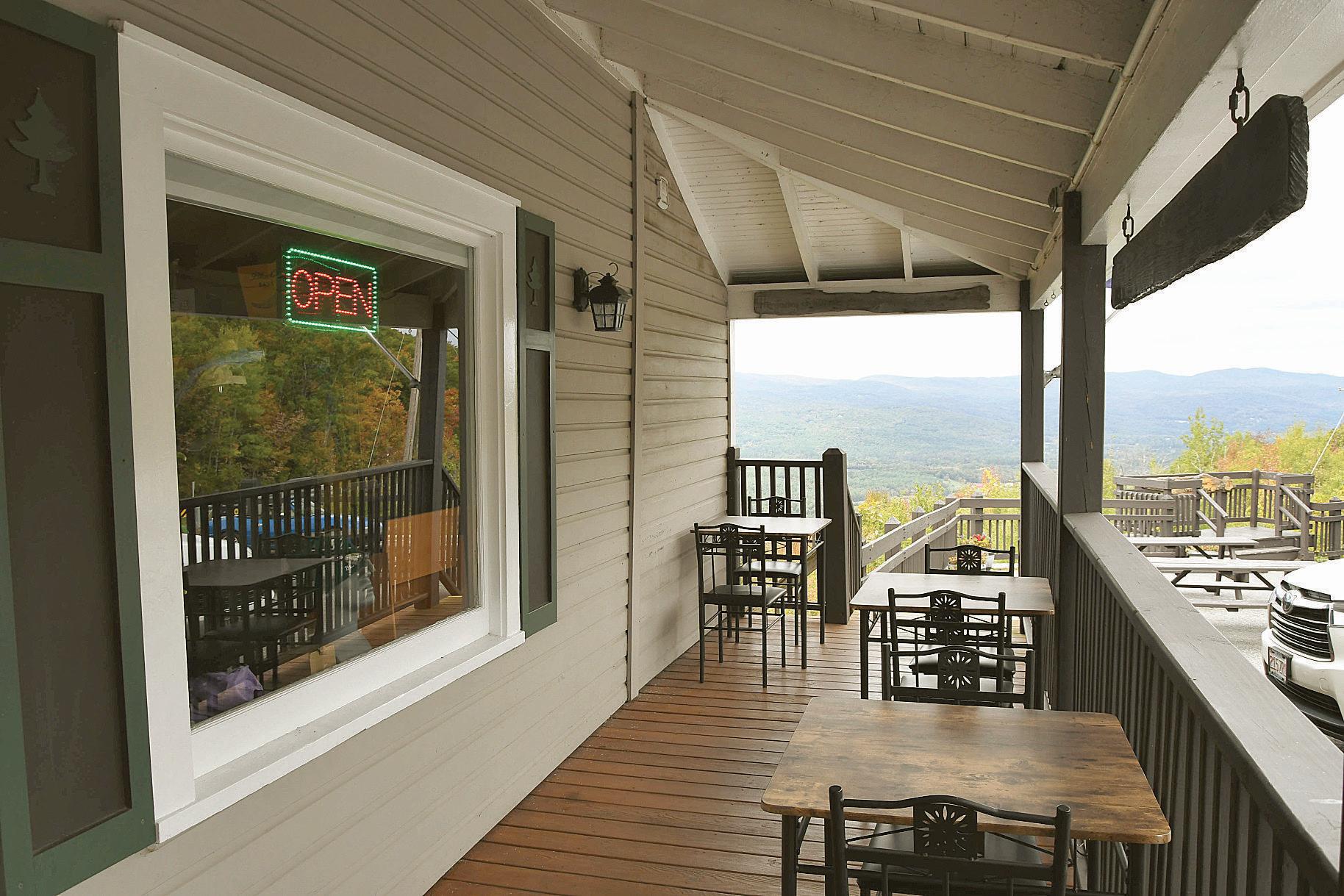
on different sides of hospitality; Alan as a facilities and maintenance technician and later as a director for a couple of buildings in Boston. Both are still working for the company in some capacity. They’ve long been tempted by the Wigwam property, boasting a pristine view from Florida Mountain of North Adams and the surrounding mountains.
“We’ve been camping out this way for more than 20 years,” Kelly Scofield said.
“We’ve camped at Savoy State Campground, Clarksburg, Mohawk, for the last 20 years, so we’ve seen the property, what
it was before, then it closed for 10 years, then what Lea and Wayne did to revitalize it.”
“You can’t beat the view here,” Kelly added. “The view is what everyone falls in love with. We’ve been doing the corporate grind for the last 20 years, what better way to put our hospitality experience to good use?”
King and the Scofields described the first weekend as being thrown into the fire, or the deep end, with all the rentals full, and the shop and cafe running at full capacity. King has shared many secrets of the gig during the last several days, in-
cluding how to make the many popular drinks such as pourover coffee.
The Scofields say they’re embracing the activity of it all, and the new challenge.
In the short-term, not much will change at the Wigwam as the Scofields push through foliage season. One notable difference is that the kitchen will not be open for the time being, as it’s too much for the new owners to take on in addition to learning the store and turning over cabins. With the change in ownership, the Scofields will also need some time
to obtain a liquor license.
With how it’s been in their first days on the job, Kelly said that she and Alan came in thinking they were going to do everything themselves; now they’re rethinking that. They’re going to get through the year with friends and family helping out, but will consider hiring a couple people to help next year.
A long-term change to maximize the glorious sunset is coming, too: The Scofields would like to keep the place open later.
“Currently, the gift shop closes at 5 [p.m.], but I know we have some amazing sunsets up here,” Kelly said. “We have people parking in the parking lot as we’re leaving for the night, sitting here watching. We’re going to try to capitalize on some of that and stay open later, but we can’t do it on our own.”
Kelly is from Deerfield, and Alan from Woburn. At the moment they live in Deerfield with Kelly’s family, but they plan on moving to the area eventually.
“The community has been amazingly supportive,” Alan said. “It’s wild.”
The Wigwam’s season is midMay through the end of October, though there are two rental units offered year-round.
King and Gelinas are stepping away from work to focus on family, but King couldn’t help but feel the familiar pull of business after she’d sold it.
“Yesterday I went to visit Wayne,” King said. “I passed the Wigwam, and the parking lot was packed. It took every ounce of discipline to just keep going down the mountain. I wanted to jump in.”

have made the
Room
By C larenCe Fanto
LENOX — The Apple Tree Inn has added a “Mediterranean touch.”
The Inn, built in 1885 as a residence and purchased in April by former hotel asset manager Claire Collery, has a new Mediterranean-style brunch restaurant, Baladi.
The restaurant, located in the inn at 10 Richmond Mountain Road, off Route 183, officially opened for business last month.
The new owners also reopened the hotel’s “Ostrich Room” bar and restaurant, where they are serving dinner and drinks from Wednesday to Saturday yearround, with live music most nights.
Baladi in Arabic means “local,” according to chefs Hagai Avrahamy, and his wife, Adi Talby, who relocated to the U.S. in May 2023 from the village of Abu Ghosh near Jerusalem. They now live in Hillsdale, N.Y., with their 7-year-old child.
The locally sourced brunch menu ranges from the full-scale Baladi breakfast ($22, or $39 for two) — an omelet, fried or scrambled eggs with frena (a Moroccan bread) and an array of salads and other accompaniments — to French toast with brioche and fruit ($18), muesli (Greek yogurt, granola and fruit, $14) and numerous other choices.
Beverages include a homemade kombucha and alcoholic choices such as “blood orange mimosa,” Bloody Mary and grapefruit juice served with arak (an anise-flavored spirit), in addition to coffee, tea, and lemonade. Collery and Avrahamy also re -

opened the hotel’s “Ostrich Room” bar and restaurant, where they are serving dinner and drinks from Wednesday to Saturday year-round, with live music most nights.
The Ostrich Room (walk-ins only, no reservations) offers an “elevated bar menu” that includes burgers and fries, mini-chicken schnitzels, smashed baked potato, polenta and arayes (lamb pita with roasted vegetables) and a dinner salad. Prices range from $14 to $24.
“We’ve added a Mediterranean touch,” Avrahamy said of the menu, but a decision remains on whether to go “full Mediterranean” by re -
branding the tavern’s dinner service as Baladi.
“We’re going to see how the brunch menu goes and how people respond to that,” Collery added.
Aside from the restaurant openings, the Apple Tree Inn has had some of the historic building’s 34 guest rooms upgraded and the outside repainted.
Coming off a hectic Tanglewood season, Collery and her husband Toph Tucker are focusing on attracting locals who have made the Ostrich Room restaurant and nightspot a local venue for live music.
“The summer was great, though
What: Baladi, the new restaurant at the Apple Tree Inn, serving Mediterranean-style weekend brunch.
When: Saturdays and Sundays, 9 a.m. to 2 p.m. by reservation (www.appletreeinnlenox.com,) or walk-in.
Where: 10 Richmond Mountain Road, Lenox, off Route 183, diagonally opposite the Tanglewood Main Gate).
Information: appletreeinnlenox.com/ baladi, 413-200-8456 or email info@ appletreeinnlenox.com
it was so hard, all so new,” she said. “I didn’t know what to expect. Obviously, there were some stressful days, but I had a really great time and the guests were happy.”
Now, although the inn is busy on the weekends, mid-week visitors are rare, Collery said.
“That’s a big challenge for me, to figure out how to get people to come Tuesdays, Wednesdays and Thursdays,” she said.
The inn initially was open seven days, but beginning this month, it will be open Wednesday through Saturday nights.
The inn was built as a private home called The Orchard in 1885.
The oak-paneled room that houses the Ostrich Room dates from 1899 when summer residents Henry Pease and Katharine Di Pollone added it as their billiards room.
The 18-sided room where Baladi will serve brunch was attached to the original building in 1963 by Michael Bakwin and was most famously known as the Omelet Room when the property was Alice’s at Avaloch, the third and final Alice’s Restaurant in the late 1970s.



supplies,” she said.
They also offer a range of services, such as nail care and hair styling.
In addition, the business helps spur activity on North Street by offering classes in hair care and other beauty techniques for adults and youth.
Their products and services aren’t only for women of color, Saunders said, but for all races and for men as well. And the business offers wigs, including for cancer patients who have lost hair due to illness.
Dolce Rose Beauty Supply also offers foster parent hairstyling instruction to help biracial families in foster care learn techniques on how to manage hair texture. And they offer a hair care class for younger girls, ages 6 to 11, she said.
THE COLLAB
“We wouldn’t have been able to take the leap without the support of the BBEC,” said Jocelyn Guelce, CEO and founder of Guelce Collaborative Marketing & The Collab at 163 North St.
“We really almost 100 percent built the [business] space out with the grant funding and wouldn’t have done it otherwise,” she said. “It has been instrumental in us being able to create this space and sustain this space for the community.”
Guelce said she and others were working digitally, from home offices, before receiving Vibe North Street funding and opening in the spring.
“We have a recording studio with a collaborative work space, and then we have an art gallery and retail space for lo-

cal vendors,” she said. “With that [grant] money, we built out our recording studio at 163 North St., in the Valenti building, and we had three empty rooms to work with.”
In rooms toward the rear of their space, she said, “we built the recording studio with a custom booth and then used the rest
of the funds to furnish the space. We were able to get some equipment for our studio, display cases, furniture for our events space and our gallery and retail space. And for our conference room, we were able to outfit that with the projector, tables and chairs, a locker system in there for renters and some computers.”
Three separate areas in the space “all kind of have their own business model; they all work a little bit independently of one another but come together to create this collaborative space that we call The Collab,” Guelce said. Providing access to multiple media services, The Collab can offer help from a team of resi-

dent engineers and vocal and performance artists to “anybody looking to create sound,” she said, including production, reproduction and mastering services in the recording studio.
“We also really try to prioritize accessibility,” she said, “so we have student pricing; we have





Our relationship managers provide the expert guidance and custom solutions it takes to help grow your business. Our local commitment builds strong, longlasting partnerships that maximize your potential for success.


membership packages that really bring the rates down to a very affordable cost for the artist.
“And they do funnel to one another, so there are different tiers of membership where artists now have access” to event space or rehearsal space, she said, such as to hold a listening party or to do a small showcase of their work.
The Collab also works with different stakeholders in the community, Guelce said. They recently wrapped up a musical series and were part of the Artswalk initiative, showcasing 14 artists.
Artwork was rotated “between our art gallery and our windows to give the artist the visibility — always partnered with a live performance in a free concert series we did in our gallery space,” she said.
And collaborative work space is offered for entrepreneurs or nonprofit organizations that lack a hub space.
The Collab also cooperates with other small businesses or groups, such as in youth productions, musical productions or workshops. One group is an art collective that is working with the immigrant population, while other entities or businesses come in and “do whatever they do,” Guelce said.
Meetings can likewise be held in the space, or workshops, such as with a bookkeeper speaking about taxes.
“And we host a weekly writers room, just to have a place to come in, collaborate, share their work,” Guelce said. “We are covering a lot of bases.”
She said she started as a dig-

A.J. Enchill, director of the Berkshire Black Economic Council, said the Vibe North Street initiative has really made a difference downtown. “We see the transformation of North Street and other businesses really taking pride and shaping up and tidying up — either the exterior, through signage, or the interior through new equipment and tidier business spaces.”
ital marketing company and then was “presented with an opportunity to create a space for my community.”
Guelce was born and raised in Pittsfield and “saw what the young adults had, what they didn’t have, and what they wanted access to. And so we really tried to provide that primarily to young adults in the community.”
They also have drawn the attention, collaboration and support “from people from all different types of areas in Berkshire County, and different demographics,” she said. “But our intention is really to support the
teens, the young adults and give them a safe space to be creative and have an outlet.”
OTHER SUPPORT OFFERED
In addition to the initial Vibe North Street grants to the businesses, Enchill said a flexible capital fund available through the BBEC could provide further improvements to a business space — awarded on a one-toone match basis.
He said the awardees were encouraged to develop a renovation proposal that “would give mutual benefit to them and the landlord.”
And the BBEC offered the
small businesses Interise, he said.
That program offers access to what is referred to as the “streetwise MBA,” or master’s degree in business administration.
Enchill said it is founded on the understanding “that not everybody is going to have the chance to get an MBA from a higher ed institution.”
He said Interise offers “a curriculum that could teach entrepreneurs how to scale their businesses and create their own three-year program,” and it includes modules on marketing, leadership, finances and other topics, “and gives the businesses


the coaching that they need.”
Enchill added, “I’m also in touch with a number of [the Vibe business owners] in a lot of ways. Some also meet as a cohort and that is part of Interise ... Where we are helping these businesses to develop a threeyear program.”
He said there were five Vibe grant recipients: Brazzucas Brazilian Market, at 75 North St., BB’s HotSpot, at 455 North St., and The Plant Connector, just off North Street at 46 West St. — in addition to Dolce Rose Beauty Supply and The Collab.
WALK NORTH STREET
The Vibe program was open to all types of business ventures, but it focused on “businesses that could support one another and consumers’ needs,” Enchill said. “We wanted to actually create a vibe and have the ability of shoppers to go up and down North Street, connecting to businesses along the way.”
He added, “If there is something I could encourage the community, if you haven’t already, then visit these businesses. Please take your time to see all the hard work, experience the delicious meals, experience the amazing products, bring them home to your family, share them with the community members and bring people to downtown North Street.
“I believe if you supported just these VIBE businesses one Saturday afternoon, you would have an awesome time,” he said. “They are great people. And while you are on your way, say hi to those other existing North Street businesses that have kept North Street alive throughout the years, have made it through the test of time, because they’re there for a reason too.”

There are several vaults on the campus of Mass MoCA. I mean giant, supersized, used-to-holdlots-of-money kind of safes. They are so big that three or more people could eat dinner in one! I am unsure of the locations or conditions of all of these vaults, but I do know that there was one that was made just for me. It’s not something I expected.

I am the Berkshire Innovation Center’s chief learning officer, doc-on-demand, in some cases, professor, and in all cases my role is to aid the community by developing innovative educational programming supported by partners like MIT, the Mass TechCollaborative, General Dynamics, and the U.S. Economic Development Administration.
When the Berkshire Innovation Center team visited Mass MoCA, we were interested in the 2nd floor vacancy but soon discovered a newer main floor option was available for our interactive technology demonstrations and experiential learning space called “BIC Works.” We swiftly secured our spot on campus.
What we did not expect was that our new space on the campus would offer a vault. Even more surprisingly — for me — was walking into this learning space one day to discover that the title of my book “Story Like
You Mean It” lit up the vault in the same bright yellow and super red colors from the book’s cover. Soon after, it was decided I’d be hosting the podcast “My Story Vault,” launching in January 2025.
I am myself, no stranger to story, though I was originally a hard science kiddo. I have helped countless individuals discover and craft life-affirming personal narratives for: career transitions, public speaking and leadership positions.
I taught my first college class as a guest lecturer in an engineering class at Providence College — a scary event in my life to be sure (so many adults) — but I eventually turned to applied psychology, humanistic psychology and systems thinking for my Ph.D. experience. I saw that there was a more complicated topic than physics, namely, people at work, and that answering the prompt: tell me about yourself, was perhaps a sign for me to use my hard science brain to soften-up the experience of personalized storytelling.
Over the last two years my book, “Story Like You Mean It,” has been translated into Chinese, German and the audio rights were authorized to create an Audible version to help those readers-turned-listeners consume its content. It’s essentially
a guide to express who a person is and how to do so meaningfully in order to showcase an individual’s unique value and worth.
My life has been richly filled with experiences where my storytelling concepts and methodologies have been used by NFL players, for high stakes speeches, by tech and university leaders and I was even invited to be a co-founder in the Sports Mind Institute. I am grateful for these opportunities to support the storytelling of others and contribute to the process of unpacking lived experiences. By helping sports celebrities make sense of their key life moments, their narratives emerged as powerful reminders that sports was only part of their story.
I am a teacher at heart. I believe that formulas and frameworks can help people do math, do technical problem solving better and enhance their storytelling efforts. Forbes even noted: “Dr. Dennis Rebelo provides the guidance you need to hone your storytelling chops in ‘Story Like You Mean It.’ Reinvent the way you present yourself to the world with a narrative creation formula that’s worked for Dr. Rebelo’s high-profile, successful clients for years. One part theory, 10 parts insights, and 1,000 times more fun than your last public speaking appearance, this book will ensure you always know what to say and how to say it.”
Back to my vault. Typically,
I do not like the word “my,” just the same, the BIC’s executive director, Ben Sonse, said: “Hey I built this for you, the sign and everything. It’s yours, do your thing Doc!”
Accordingly, I now have a vault and I guess it’s mine to do something with, something of value. I decided the answer was to bring key contributors to the BIC into the vault to do what I’ve been doing for years, to unpack the power of story from people’s lives and synthesize their stories to their work in the Berkshires community.
Ben and I have decided to host 50 individuals at BIC Works on the campus of Mass MoCA. These invitees will be individuals who are paramount to the work we share at the Berkshire Innovation Center. Through long-form dialogue — in the vault of course — their motivations, key life moments, and current rationale for working in the Berkshires will become center stage. We call the education we do at the BIC “learning in the fringe” because it’s a space in between the higher ed and industry. These conversations are part of that work.
Though we are keeping the official names of those being invited to “My Story Vault” under wraps for now, I can make some predictions about what listeners will learn from the podcast:
• Much like with the Sports Mind Institute when I worked
with Coach Tony Dungy, the stories and life moments that people will likely share during these conversions will be less predictable than even they suspect.
• The motivation for leaders and innovators to contribute to our Berkshires’ community may shed light on the reality that our region is a wonderful place to live, work and collaborate with others.
• The power of “community feeling” and “contribution to work” are connected.
• Everyone in our community — at all stages and ages of life — can and wants to be somebody who is known as being competent at something.
• When we become more receptive and exploratory in our relationships, we can learn what key skills someone else has to offer.
• Stories are sense-making, helpful and provide ways to rethink how we make decisions in the “now” and “future.”
• Personalized stories can model how we can all reclaim self-authorship in our lives.
• Stories are viral; like technology that spreads rapidly, useful stories can and will spread to help all of us realize what we have right here in the Berkshires — from people who are living in the region and from those who opted to “jump in” — and help us build a resilient technology-enabled ecosystem in these lovely hills.
Dennis Rebelo is chief learning officer at the Berkshire Innovation Center and host of the podcast “My Story Vault.”








BY LUKE DELORME
There is a lot of political fervor in the air, to put it mildly. By the time you read this, the votes will have been cast, and we may know who our next president will be.
About half of voters in this country are going to be devastated and half will be ecstatic with the outcome. This devastation or glee will compel many people to make changes to their investment portfolios.

After the surprise outcome of the 2016 election, markets were turbulent, and many investors changed course. I spoke with a Republican-leaning investor several years later who told me that he bought U.S. stocks because of the Trump presidential win.
His logic was that deregulation and lower taxes would unleash the value of publicly traded companies, and so he wanted more exposure to the U.S. stock market. As it turned out, the U.S. stock market went up during the Trump presidency, and this investor felt emboldened by his decision.
For many investors, though, the reverse was true. The overnight shock to the US stock market following Trump’s election was severe. Markets showed that U.S. stocks were set to open down by 8 percent, a historically massive negative day. I spoke with many investors about their fear of what might happen under a Trump presidency, and how the stock market would fare as a result. Of course, those investors who bailed on the stock market missed out on a sizable 67 percent gain in U.S. markets over the next four years.
What about the previous four years? At the beginning of Obama’s second
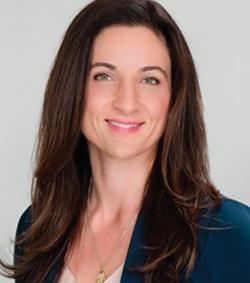

term, the consensus view was that Obama was bad for stock markets. He imposed regulation, seemed to favor higher corporate taxes, and many Republicans felt that he was leading the country down the wrong economic path.
The same investor who felt emboldened to invest under Trump had been underexposed to U.S. stocks during the Obama presidency. Whoops ... the U.S. stock market grew 63 percent from November 2012 through October 2016, including the reinvestment of dividends. This came after a 55 percent total return during Obama’s first term.
But how much did the stock market gains under Obama, Trump, or Biden have to do with their policies? Probably not too much. While the president has a lot of control over the priorities of the country, it’s not evident that he or she has much impact on the earnings and growth of Apple, Google, Tesla, or hundreds of

other companies in the U.S. stock market. After all, the stock market represents ownership in our largest companies. Certainly, there can be specific policies which help or hurt individual companies, but on average, the companies that comprise the S&P 500 Index are the most well-run, profitable companies in the history of the world. It’s hard to imagine any politician can have much more than a small, short-term impact on this portion of the market.
While it’s reasonable to wonder what to expect from the stock market in the next four years, I urge everyone not to let politics influence their investment strategy. We can hypothesize about what Harris or Trump might mean for markets, but it is impossible to predict the future. So even if we know with certainty the outcome of a given election, it’s not apparent that we ought to do anything with that information.

Another great example of how disconnected the markets can be from investors’ expectations has played out during the Biden presidency. Many investors — professional and otherwise — expected that oil-producing companies like Exxon and Chevron would struggle under a more environmentally conscious administration.
In fact, since Biden took over, this segment of the market did the opposite. While the U.S. stock market is up 80 percent since Biden was elected, the U.S. Energy Sector (as measure by the iShares US Energy ETF) is up an astounding 240 percent. It is among the best performing sectors in the economy.
This same energy ETF was down by 50 percent during the supposedly oil-friendly Trump presidency. It defies expectations.
No matter the outcome, we’re going to hear from some people who are certain of the damage the next president will do to our economy, and we’re going to hear from others with the exact opposite opinion. Under these alternative narratives, the stock market either tanks or soars — and those make for good news articles. The truth probably lies somewhere in between, but there is no telling what the next four years will bring. It is dangerous to make any changes in an investment strategy based on a political view that is innately biased.
Money needed in the next four years ought to be held in something relatively conservative regardless of the next president. Markets sometimes go down. The longer-term story also remains true. If you’re investing for five or more years into the future, you’re likely to be better off by staying invested.
Investing is about your time horizon and spending needs, not about who the next president is.
Luke Delorme is director of financial planning at Tableaux Wealth in Stockbridge.
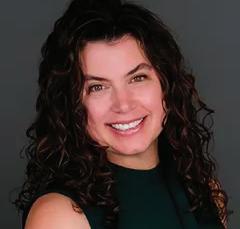










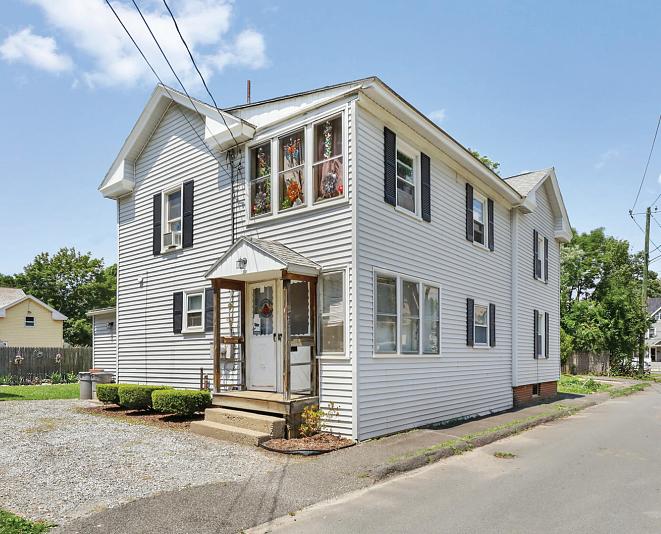
According to Giving USA, donations from individuals over the past five years are down, while giving by foundations and corporations rose in those same years. Locally, Berkshire nonprofits have benefitted from a supportive corporate giving culture.
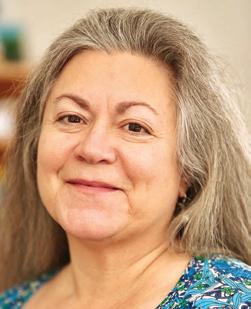
The folks tasked with managing philanthropy for their organizations have a tough job indeed. There have always been more asks than allocations, and making those giving decisions can’t be easy with so many worthy charitable organizations.
What struck me at last year’s “Meet the Donors” event (in which funders talked about the focus of their philanthropy and fielded questions from the audience of curious and hopeful nonprofits), was the humility and humanity of the people behind the checks. Most of them get to witness the actual work they fund, and are awed and inspired on a daily basis by the sheer magnitude of good causes and caring people in our community. But they also have to be practical when faced with the reality that there’s only so much to go around. We asked some local funders to share updated information about their giving strategies and tips for nonprofits seeking funding.
ADAMS COMMUNITY BANK

Barbara Guido, senior vice president, retail banking Focus: Adams Community Bank is committed to positively impacting the communities we serve by providing equitable support across Berkshire County. Our primary areas of focus are human services, economic development, youth and education, culture, and agriculture.
Trends: We’re seeing an increased need for donations to address the growing challenges Berkshire County residents face, particularly in housing, transportation, economic security, mental health, and education.
Tips: Embrace collaboration with local partners and across sectors. Engage local donors, local leaders, and the community not only through funding requests but by inviting them to events, volunteer opportunities, and community decisions. Ensure your organization has a grant writer or consultant to increase the odds of receiving government funding.
BERKSHIRE BANK FOUNDATION

Lori Gazzillo Kiely, managing director
Focus: Berkshire Bank Foundation is committed to investing in the success and vibrancy of those living and working in the communities served by Berkshire Bank. Focus areas include supporting small business growth through access to capital, education, and technical assistance; investing in programs that foster a pathway to upward economic mobility and overall well-being; and providing access to quality affordable housing to help individuals and families gain financial stability and achieve long-term wealth. We prioritize organizations with which we can partner through volunteerism or board service.
Trends: We are seeing a large number of applications this year, which is making grant-giving increasingly challenging.
Tip: We recommend organizations with similar missions to partner and collaborate as much as possible, as well as provide enough lead time for grant consideration.

BERKSHIRE TACONIC COMMUNITY FOUNDATION

Kelly Sweet, interim director/philanthropic services
Focus: Berkshire Taconic directs charitable dollars through various funds, each with its own guidelines. We have funds focused on specific geographies, donor advised funds shaped by wide-ranging donor priorities, the Community Fund for emerging needs throughout the region, and the new Equity Fund, which supports organizations led by or serving communities of color.
Trends: Housing, economic opportunity, and food security remain top concerns. Nonprofits are increasingly requesting general operating support to pay and retain skilled staff. Berkshire Taconic supports these efforts wherever possible.
Tips: We encourage nonprofits to reach out to Berkshire Taconic, and we will always try to match needs with resources. If one fund isn’t a match, we may be able to connect organizations with donors whose priorities align with their mission.
GREYLOCK FEDERAL CREDIT UNION
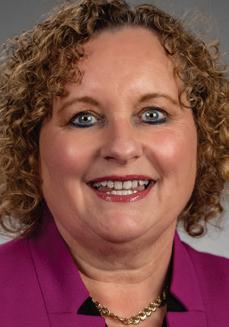
Jennifer Connor Shumsky, assistant vice president, community support and events
Focus: Greylock Federal Credit Union truly works to form a collaborative relationship with its community partners to address local needs. We work with an organization as a whole and support programs along with event sponsorships. Greylock is guided by our IDEA principals to support 501©(3) organizations that reflect our community.
Trends: The nonprofit sector is continuing to grow the number of nonprofits. In 2024 nonprofits are feeling the effects of large amounts of COVID-19 relief funding drying up and increased operating costs while trying to balancing their budgets and continuing to providing vital services.
Tips: We ask new organizations to review our website and giving guidelines. The information will include
a look at the application along with required supporting documentation and the outcome form upon completion. Feel free to reach out to Greylock Community Support to begin a conversation and we can walk you through the process.

Alison Brigham, vice president, brand experience and community impact
Focus: At Lee Bank, we are deeply committed to improving the lives of Berkshire County residents by supporting local organizations. Through the Lee Bank Foundation, we provide grant funding to 501©(3) nonprofits with innovative programming focused on bridging income and opportunity gaps. Funding priorities include education and literacy (empowering individuals through knowledge and skills development); food security and nutrition; economic growth and development (projects that support a thriving local economy); health and human services; and mentorship, internship, and schoolto-work initiatives (preparing the next generation for success).

Andy Wrba, program manager
Focus: Mill Town Foundation operates unique programming, and partners with organizations that make significant contributions to the Berkshires’ economy and culture. We prioritize programs that address direct community needs, provide access to essential resources, and sustain long-term impact related to our core focus areas: arts and culture; education and capacity building; health and wellness; neighborhoods; and outdoors. As a convener, Mill Town Foundation actively brings together key stakeholders to encourage collaboration across sectors, driving collective solutions to regional challenges.
Tips: For organizations seeking support, we value a clear articulation of impact, strategic vision, and a commitment to financial sustainability. Demonstrating adaptability, strong leadership, and a collaborative mindset will strengthen your organization’s position as we work together to improve the quality of life in Pittsfield and throughout the Berkshires.




There is no downplaying the value of showing up.
Whether we’re sponsoring local events, providing free music at local bars and restaurants, or offering educational experiences at our shop and with local partners, our team at Canna Provisions makes sure to be present for the communities we serve. But showing up isn’t just good for business — it’s essential for the future of cannabis.
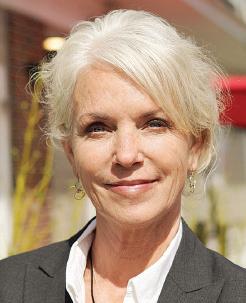
We all know that the legal cannabis industry still faces challenges, from ongoing stigma to misconceptions rooted in decades of misinformation. But it’s our responsibility, as cannabis businesses, to help change that narrative. And the way we do that is through active involvement in our communities. By participating in local events, sponsoring beloved community gatherings, and educating the public, we not only help normalize cannabis — we help build trust. It is no different than with all businesses who benefit from participating in their community.
For example, when we sponsor Lee Founders Weekend, or bring live music to bars and restaurants like the Locker Room, we’re not just looking
to boost visibility. when we sponsor Lee Founders Weekend, or bring live music to bars and restaurants like the Locker Room, we’re not just looking to boost visibility. We’re connecting with our neighbors and creating opportunities to educate, break down stigmas, and show that we’re a positive force in the community.
The same holds true for our participation in events in neighboring communities, like Bousquet Oktoberfest, as well as the Harvest Festival at the Berkshire Botanical Garden. From being on the board of our local chamber (and members of multiple local chambers for that matter), it’s about not standing on the sidelines and engaging directly with the public, showing them that cannabis companies are part of the community fabric like any other business.
That’s why we were honored to be named Corporate Citizen of the Year by the Lee Chamber of Commerce in 2023, as well as Kiwanis Corporate Citizen of the year as well. Recognition reflects how a cannabis business can have an ongoing commitment to the people who live and work here, and it proves that when
a cannabis business shows up, it can make a real difference.
But let’s be clear — this isn’t just about being good neighbors. It’s also about destigmatizing cannabis and educating the public. Our various “Weed and Wellness” events that we partner with local venues for, for instance, create spaces where we can have open, honest conversations about cannabis and its benefits.
These free 21+ gatherings allow us to reintroduce cannabis to the community in a way that feels comfortable, approachable, and integrated into daily life. Events like these are essential to breaking down barriers and reeducating the public on what legal cannabis is and what it can do.
And it’s not just Lee where we focus our efforts. In our Holyoke community where we have a store, we’ve become involved in beloved local events like the St. Patrick’s Day Parade, one of the largest in the country. We don’t just show up — we fully immerse ourselves in these long-standing community traditions. By participating in these events, we help reshape how people view cannabis companies. We’re not outsiders looking to capitalize on a new market — we’re active members of the community, members of the local Rotary Club, we’re out
there as a cannabis business contributing to its culture, its economy and its future.
To those in the cannabis industry, especially those just entering the market, this is the model we must follow if we want to see the industry thrive long term. It’s not enough to simply open shop and wait for customers to come through the door. We need to build relationships. We need to educate. And we need to be present in our communities, not just as businesses, but as leaders in shaping the future of legal cannabis.
The cannabis market is young, and its success will depend on the trust we build today. That trust comes from showing up — at local events, at community celebrations, and through wellness and educational initiatives. It’s about creating positive associations with cannabis so that it becomes as normalized as any other industry in our towns and cities.
But let’s not forget the importance of reeducation. The lingering stigma around cannabis won’t just disappear because it’s legal now. Many adults still associate it with its illegal past, and it’s our responsibility to change that perception. When we sponsor events, provide music, and engage in local traditions, we create moments where education
happens naturally — where people see cannabis companies as contributors to community life, not as outsiders.
To the local cannabis industry: we can’t afford to sit on the sidelines when it comes to community engagement. Every time we show up, we create an opportunity to educate, destigmatize, and normalize cannabis. It’s through these actions that we build a solid foundation for the future. When we’re present, people start to see us differently. We become part of their daily lives, not just a place to buy products but a partner in wellness, community and education.
In the end, showing up for our community isn’t just a nice-to-have — it’s a must. We have a unique opportunity to help redefine cannabis in the eyes of the public, but that only happens when we engage fully. At Canna Provisions, we’ve seen firsthand the positive impact that comes from being involved, and we know that this is the path forward for all cannabis businesses. Let’s continue to show up. Let’s continue to educate. And let’s continue to be leaders in shaping the future of cannabis — together.
Meg Sanders is CEO of Canna Provisions.

Re s o u r c e D i r e c t o r y





By C larenCe Fanto
LENOX — The historic Garden Gables Inn, hidden away off Main Street in one of the town’s oldest surviving houses, is proposing a major expansion of its 15-room boutique bed-and-breakfast.
The Zoning Board of Appeals was expected to continue discussions on th the special permit application at an upcoming meeting.
Built in 1780 as a private residence known as the Eliza Williams House, and later as the Butternut Cottage for the butternut trees on its scenic property, the inn and gift shop opened in 1951, according to lenoxhistory.org.
Acquired by the Vittori family for $1.9 million in 2006, the inn received the Top 25 Small Hotels-United States award on TripAdvisor in 2023, for the second time. The property includes the town’s first in-ground concrete swimming pool built in 1911, as well as several patios and gardens.
If the zoning board approves the expansion — including construction of a new, 10-guest room hotel building and a separate event hall — the site is set to be acquired from Vittori Properties LLC by Sullivan Capital LLC, a real estate investment and development company based in Salem.
The Vittori family also owns Furnace Brook Winery at Hilltop Orchards and Nordic Center on Route 295 (Canaan Road) in Richmond.
Sullivan is under contract to purchase the 4.2 acres at the Garden Gables as well as the business operated by Paradise Inns LLC, based at the property.
The property has been listed on real estate sites for $2.6 million.
The town currently assesses the 135 Main St. property at $2.1 million, which includes the main building, attached cottage and a separate orchard cottage — 15 guest rooms in all.
If it wins ZBA approval, Sullivan Capital, which focuses on high-end luxury development and boutique hotels, would seek a certificate of appropriateness from the Historic District Commission.

The proposed new event hall would host small weddings, birthday parties, baby showers and retirement parties, with a maximum occupancy of 70 guests.
According to the ZBA application filled by attorney Grace Enchill of Heller & Robbins PC in Lenox, the special permit would “continue to encourage the most appropriate use of the land and increase the amenities of the town.”
The application states that the inn has grown to meet the needs of its business and guests “while receiving unanimous approval from town boards and adjacent
residents and zero opposition.”
“The proposed addition of a new hotel building and event hall address the business’s need for increased revenue and its guests’ need for an event space,” the document says.
Other special permit guidelines addressed by the application include:
• Increased assessed value based on improvements, leading to an increased tax base with enhanced lodging tax and tourism.
• Expanded parking from the current 25 spaces to the required 36 spaces, includ-
ing 11 additional slots by the event hall.
• Proposed extension of the inn conforming with the downtown character of single-family homes, apartments, commercial properties and municipal use.
• Little or no impact on the natural environment, with a majority of the natural vegetation remaining in place.
• Positive economic impact, including 6 projected new jobs along with increased foot traffic and spending at local downtown businesses.
BY CLARENCE FANTO
LENOX — Jennifer Berkel learned quickly that retirement wasn’t for her.
The proprietor of What a Gift shop near the downtown post office had closed down her Main Street location last winter, seeking a slower pace and part-time work as needed.
“I was a little burnt out, tired of missing out on what I thought of as fun-life events,” she said.
But she realized that she missed her customers, and the space was still empty, so Berkel un-retired and officially reopened the store on Oct. 19.
“I want to work, I need to work, so why not do what I love to do,” she explained. “So here I am.”
The store, located at 68 Main St., is all about the personal touch, Berkel said. So, there’s just a simple website, no online ordering, no social media except occasional Instagram updates.
“I wanted a retail store, I want the face-to-face interaction with my customers,” she said.
Her first, smaller location on 67 Church St. opened in late 2018, but Berkel moved to this larger space opposite Nejaime’s Wine Cellar in the Village Center plaza in April 2021.
“Location is everything,” she noted, citing the ample parking in the plaza owned by real estate investor Drew Davis. “I couldn’t ask for a better location.”
The shop had been the longtime home of Villager Gifts, which closed in 2014 when owner
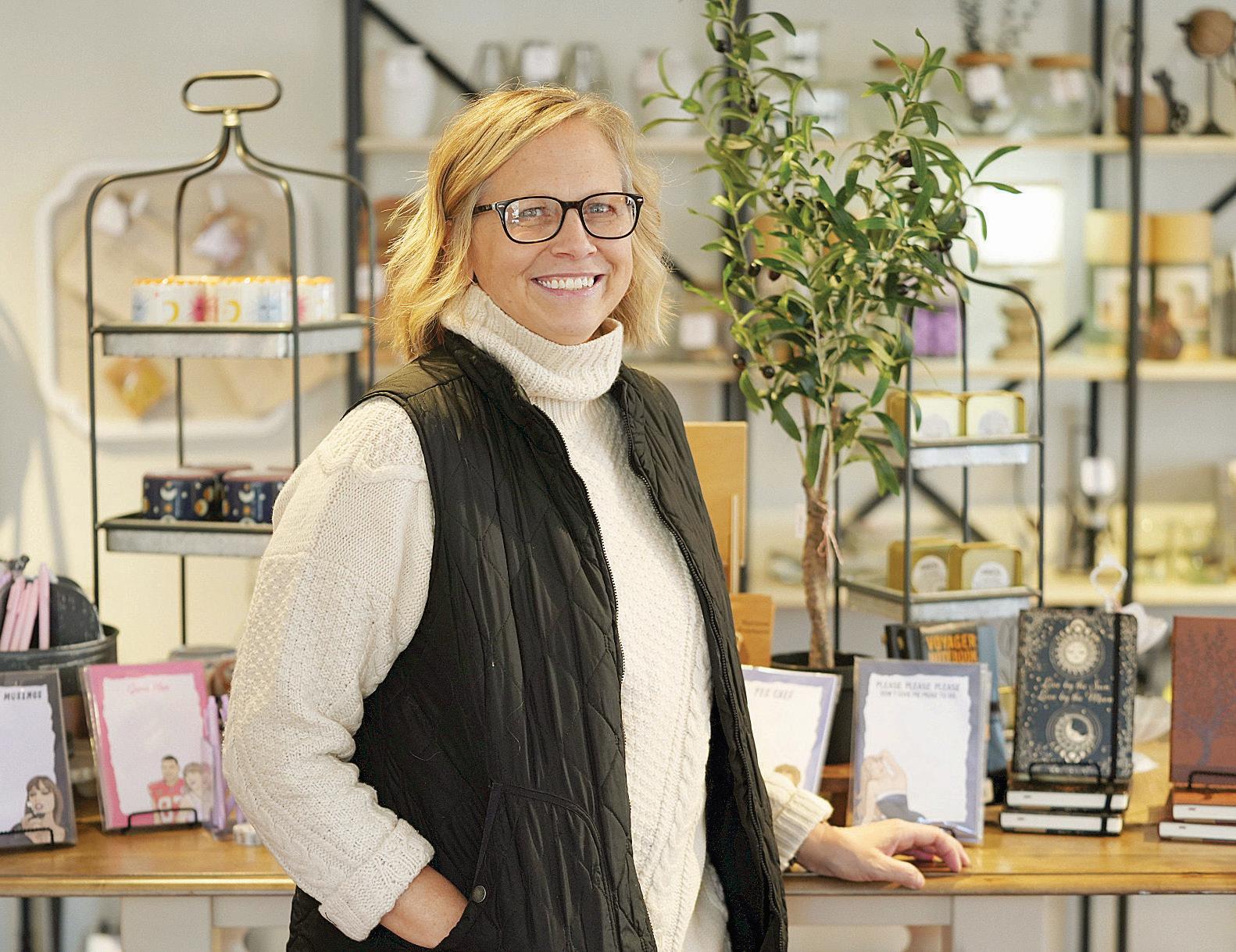
Jim Terry retired after 22 years. “There’s a lot to learn, a fun process, a lot of work,” Berkel acknowledged. “But I like to shop, I know what I like. I don’t want to carry what everyone else carries.” Berkel stocks the store with
what she likes to see in gift shops, what would make a nice gift, and tries to keep prices affordable. Berkel, a Pittsfield resident, finds that people like funny gifts, and she’s known for “snarky cards” with four-letter words, which find favor with some cus-
tomers, even older ones.
As she puts it, “people want to laugh, they come in here and call it their happy place, finding things they don’t find everywhere else. I want to be unique, so people feel they have to come here for ‘that gift.’”
If You Go ...
“What a Gift, 68 Main St., Village Center, Lenox.
Open 10 a.m. to 5 p.m. Thursdays through Saturday, Monday; 11 a.m. to 4 p.m. Sundays.
Information: 413-551-7424 or whatagiftlenox.com
Berkel, describing herself as “not a salesperson,” warmly greets customers, but leaves them to find their favorite gift, helping if needed — “it’s not a hard sell, I’m not going to talk someone into buying something they don’t want.”
With the holiday season looming, she points out that “everything in here is a stocking-stuffer — socks, card games, hand lotions, lip balms, shower steamers, a lot of little things.”
Her grand reopening on Oct. 19 attracted “a real nice, welcoming-back reception, people have been great and everyone told me they missed it, people seemed really excited to have it back,” she said.
Her goal is to maintain the success she found previously in downtown Lenox.
“We need more people to open shops and customers to support them,” Berkel said.
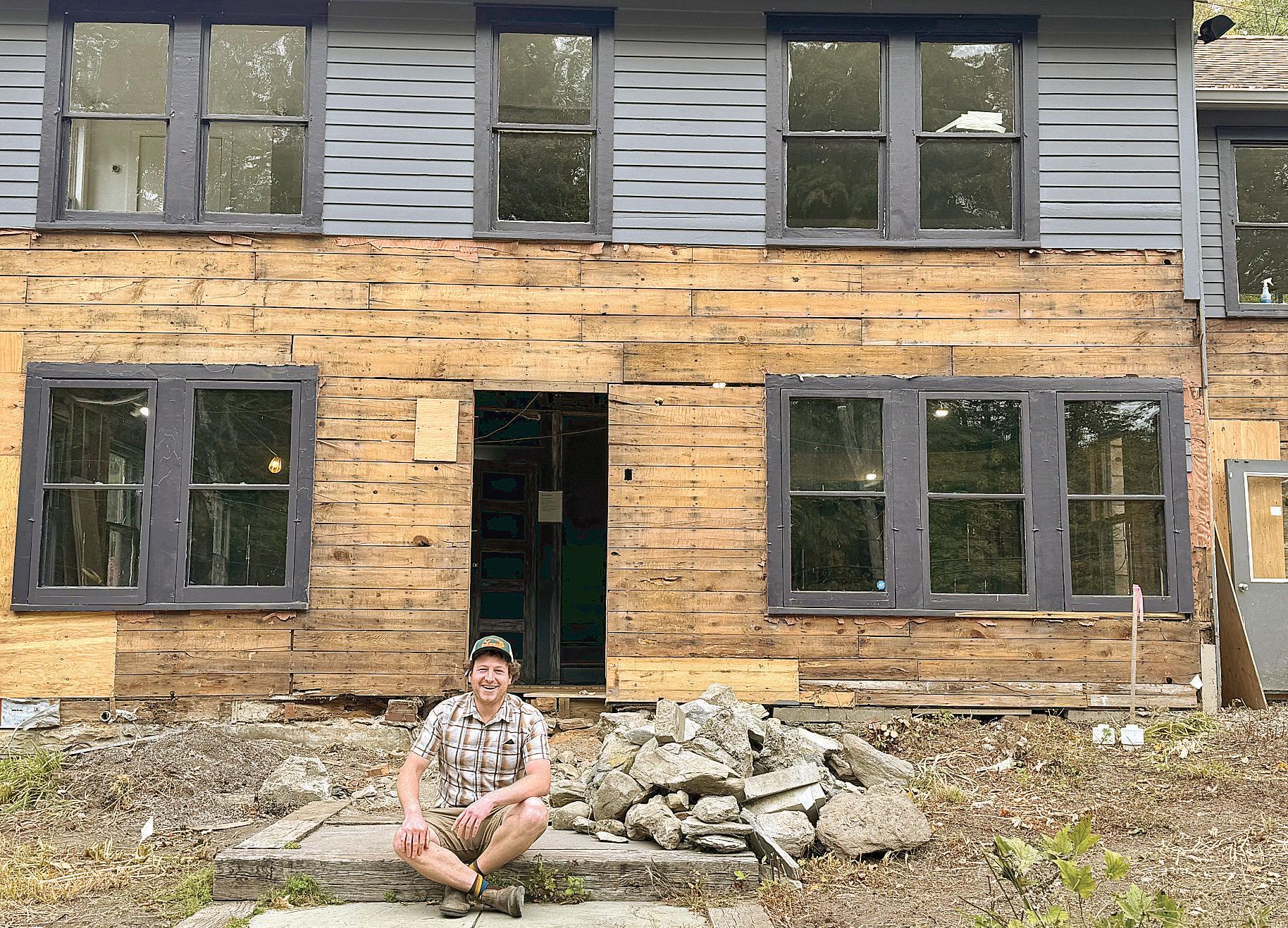
By Jane K aufman
EGREMONT — The 1790s building that will eventually house the new restaurant, Hilltown, is undergoing major construction.
The total renovation is more than Rafi Bildner imagined when he bought the former John Andrews Farmhouse property at 224 Hillsdale Road. But that’s what happens when you open up walls and begin examining the structural integrity of an old building, or for that matter, an addition that was made when codes might have been a little looser, as was the case in the rear dining room.
“Now, after six years of dwelling on this and being nomadic, it’s time to do the thing,” said Bildner, who owns the traveling pizza business Hilltown Hot Pies. “There’s been a lot of waiting, and now it’s actually here.”
Bildner is hoping the project will take no more than eight months, so he can open his farmhouse venue by June in time for the Berkshires summer season.
Meantime, he’s wearing at least four hats: construction supervisor, fundraiser, caterer — as well as restaurateur, planning for all aspects of the opening.
Bildner bought the building and grounds for $767,500 on April 7, 2023, under the name Hilltown Hot Pies from previous chef and owner Danny Smith. That summer, Bildner opened a popup pizzeria on the site. This summer, he ran the operation at the Egremont Barn.
Bildner said Hilltown’s centerpiece will be an expanded kitchen with a wood-fired pizza oven. Diners will be able to sit around the oven and watch the pizzaioli at work. An expanded bar will also be part of the plan as will that reconstructed back dining room.
The entrance might be the most visibly changed element to the building, featuring large glass windows and a metal roof. He described
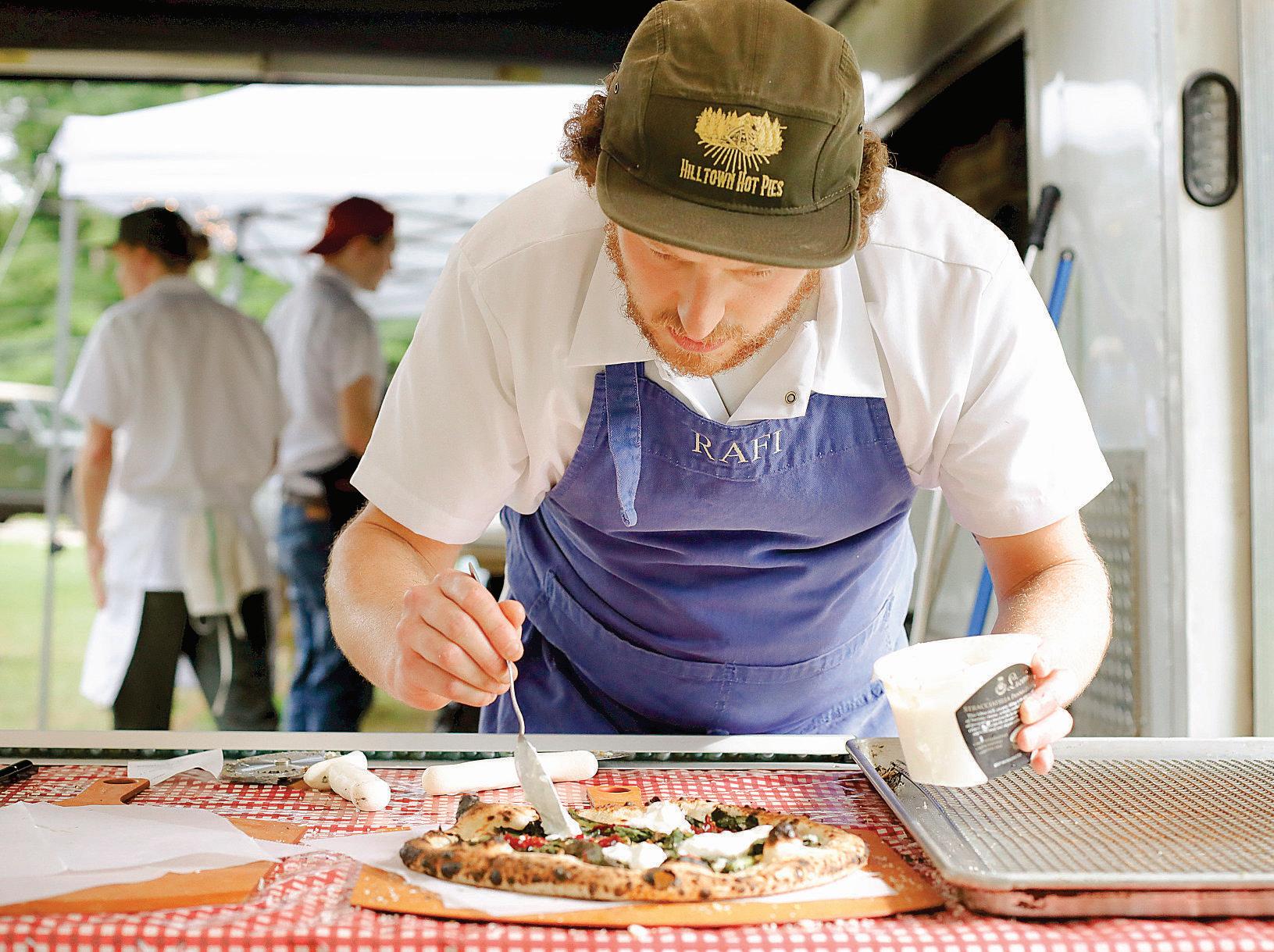
the design as an amalgamation of the old and new.
“It’s like a portal into the old farmhouse,” he said. “There’s work being done to expose some of the original beams.”
Steel structural supports are also needed “to literally keep the building standing.”
The gardens in front will disappear, but the vegetable garden Bildner put in will stay, and other beds will be rebuilt following the construction. He’s planning to grow wild edibles for culinary use, raise grapes and berry bushes and eventually have outdoor dining and a pizza yard.
Bildner said he’s grateful for his design team, including architect Jacob Bek at Clark + Green, interior designer Brady Dollarhide and general contractor Shimon Rotches. He declined to disclose the total cost of the project or to name his bank or other members of his financing team.
“It’s a quintessential ‘New Englan-
dy-farmy’ property, and so the mission was preserve the original 1790s structure, while doing two things: stabilize the building and make it structurally sound and up to commercial building code and then most importantly provide the operational considerations that we need to run a viable restaurant,” he said.
In order to meet clearances, code, fire egress and the Americans with Disabilities Act, the front will be expanded.
He said that entrance will provide a “new chapter” of the building, including some large windows looking onto the pizza oven. The deck will be revamped as well partly to meet ADA regulations.
“The dream for me is to carry on what we did with the popup that we did in summer 2023,” Bildner said, adding that he hopes “there is a strong connection between the outdoor environment and the landscape and even if a customer is sitting inside, they feel like they’re a part of the landscape
around them.”
Bildner wants people to feel comfortable to come in for a casual meal at the bar or around the pizza oven, but also hopes the restaurant will bring in the elegance of southern Italy.
“So one part New England farmhouse tavern, one part southern Italian pizzeria,” he said.
There will be 68 seats indoors and another 40 on the deck and patio, with the seasonal outdoor pizza yard adding informal picnic seating at peak times.
As a 31-year-old restaurateur and entrepreneur, Bildner said he didn’t set out to do a total building gut and didn’t expect to take this large of a risk.
There will be 68 seats indoors and another 40 on the deck and patio, with the seasonal outdoor pizza yard adding informal picnic seating at peak times.
“There wasn’t even an option to put on patches,” he said. “Every element of this building had to be re-approached.”
As he embarks on this project, he’s taking the long view.
“Five years or 50 years, this will be a restaurant building and hopefully a viable restaurant property for many, many, many more decades to come,” he said.
Along the way, some discouraged him from continuing, but he’s committed to the project and to Egremont, where he now lives around the corner from the restaurant.
“I love the property,” he said. “I love the Berkshires. I’ve been building this business here for six years now, and this is my home, and I’m going to see it forward on this property. It’s not going to be an overnight thing. I know that, but I hope it has legs for many years to come.”
By H eat H er Bellow
LEE — The state has awarded a $500,000 tax incentive to a company that fills vials and syringes for pharmaceutical companies and helps them develop these products.
The award to Berkshire Sterile Manufacturing, said company President James Hamilton, will create 20 new jobs at its Pleasant Street headquarters. This adds to its current workforce of 240.
The Healey-Driscoll Administration and the Massachusetts Life Sciences Center announced on Tuesday that the award is part of a larger $21.4 million in tax incentives for 19 life science companies in the state.
It is also part of a push by Gov. Maura Healey and Lt. Gov. Kim Driscoll to keep and attract high-tech industry and innovation in the state.
The Massachusetts Life Sciences Center Tax Incentive program for the industry has helped create over 18,000 jobs since its inception, according to the administration.
The incentives are “offered to companies engaged in life sciences research and development, commercialization, and manufacturing in Massachusetts,” the statement said.
The MLSC is an economic development agency supporting work in the fields of biopharma, medical devices, diagnostics and digital health.
Through $1 billion in public-private partnership investments, the MLSC has “created thousands of jobs and propelled the development of new therapies, devices and scientific advancements that are improving patient health and well-being in Massachusetts and beyond.”
The tax incentive awards require the companies to maintain a work commitment for more than five years for the new hires. Hamilton, who has been

The state has awarded Berkshire Sterile Manufacturing in Lee a $500,000 tax incentive to create 20 new jobs at its pharmaceutical injectables plant. The award is part of $21.4 million in incentives from the Healey-Driscoll Administration to help the life sciences industry in Massachusetts continue to grow.
president of Berkshire Sterile since May, said his predecessor, founding CEO Shawn Kinney, made the “rigorous” application to MLSC for the tax incentive award. Kinney is now a company consultant.
The company is soon to be called “Sharp Sterile,” after an acquisition last year by Sharp Services LLC, a multinational pharmaceutical packaging company.
The company has grown
steadily in recent years. While some specialists relocate to take jobs here, Hamilton said, the majority of the company’s workforce were hired from the Berkshires.
“We sort of pride ourselves on hiring people, even from outside the industry or adjacent industries, and then developing them and giving them the skills to prosper in the pharmaceutical industry,” Hamilton said.
Berkshire Sterile sells “a
service,” Hamilton said, of what is ultimately the fill and finish of injectable pharmaceutical products.
The pharmaceutical companies “come to us and we will formulate their product, put it in a vial or a syringe or a cartridge so that they can use it in their clinical trials, or they can use it commercially,” he said. Their services, he added, include engineering and analysis.
The plant, Hamilton said, has
three sterile filling lines, and is about to upgrade its vial washer in the next year.
So the tax incentive award, he added, is helping the company boost its overall growth further.
“We appreciate the backing of the state and the partnership with local government,” Hamilton said. “We’re pretty proud of the space we occupy here in the Berkshires and the fact that we can offer high tech manufacturing jobs.”
By Sten Spinella
NORTH ADAMS — It’s been a yearslong mystery: What is Andrew Fitch planning to do with the prominent building on the corner of Eagle and Main streets?
The answer comes down to pie. And cocktails.
Fitch, a city councilor, is partnering with Meghan Daly to rehabilitate the building and eventually turn it into a destination for drinks and baked goods, opening a bakery and cocktail bar named Steeple City Social.
After multiple attempts to recruit another baked goods-driven businesses led by Daly into the downtown building, the duo has finally decided to open their own business and have been planning their next move since the beginning of this year.
Empty for years apart from signs or art adorning the windows, the property will hopefully be home to the new business as soon as winter — after a fundraising effort and some construction.
“I was most excited about, from the beginning, the fact that the building could help as a driver for all of downtown,” Fitch said. “I wasn’t married to any one idea — I wanted to make sure there would be a lot of foot traffic added.”
The business partners have organized a Kickstarter campaign to raise money for their last $20,000 needed to get the operation going. The money would pay for remaining equipment, licenses, permits, inventory, starting materials and start-up costs.
Fitch bought the downtown building in December 2021. He said that for two years he has been working with an architectur-
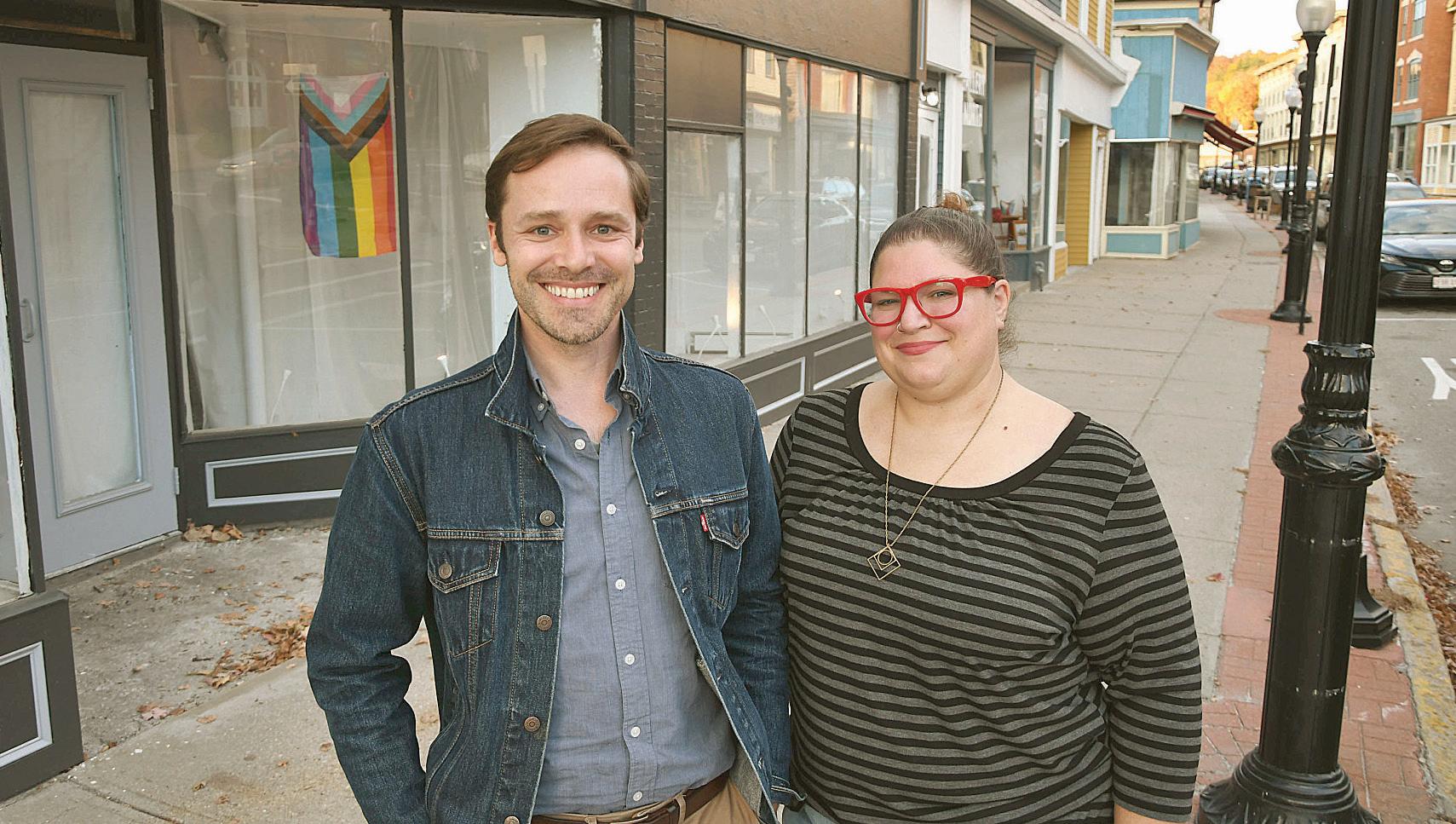
al and engineering firm to make good use of the ground-floor commercial space.
Phase one includes the exterior rehabilitation of the Eagle Street facade and the forthcoming development of the ground floor commercial space.
Daly ran a brick-and-mortar pie bakery for three years in Brooklyn, N.Y. She said that she was hesitant to get back into the business, but she’s excited by the idea of Steeple City Social.
“We really wanted it to be a place people could come, hang out, and spend time with each other,” Daly said. “We wanted it to be about being social with other folks, getting out of your house, hanging out, and finding some space to be with people.”
In addition to food and drink, Steeple City Social will have a retail aspect for vintage housewares and cookbooks.
“We plan to be open late morning to late evening with a seasonal menu full of terrific baked goods, snacks, sandwiches, and cocktails among other things,” the business’s Kickstarter campaign reads.
Exact hours for Steeple City Social have yet to be determined. Fitch and Daly are planning on hiring a few helping hands.
Fitch and Daly have worked together over the past couple years running
A&M Bakery at the North Adams Farmers Market, which sold breakfast sandwiches, coffee, lemonade, pies and more. They’ve also put on pop-up wine bars
during First Fridays.
Daly and Fitch met during a 2021 pride celebration in North Adams.
“We ended up at an after-party together, and that’s where I learned she’d run a pie bakery,” Fitch said. “I had my first piece of pie from her that night, it was the best pie I’ve had in my whole life. That started in my brain, ‘I wonder if Meghan could open up in that space.’”
Fitch’s go-to pie had always been blueberry, until he tried Daly’s honey-caramel-peach creation.
“That is now my favorite pie,” he said.
Fitch says he’s interested in entrepreneurship and supporting small business owners. Daly is a current steering member and former manager of the North Adams Farmers Market.
In 2022, Fitch demurred on what the full plans were for the property, but told The Eagle he planned to open a commercial space on the first floor and a residential space on the second, and that construction could begin soon. In the future, Fitch is planning to rent the residences upstairs, but that requires a renovation.
“I have come to the realization and understanding that downtown North Adams is a difficult nut to crack,” Fitch said at the time. “I think we’re starting to get there. There is some secret sauce that’s missing.”
The proprietors said they hoped the business would last.
“Many businesses have come and gone, not just from Eagle Street, but all of downtown,” Fitch said. “We really want to have staying power here, and to stick around for the community.”
Berkshire County Real Estate Transactions for Sept. 2-27
ADAMS
David J. and Deborah A. Moran sold property at 50 East Road, Adams, to Brendon Goss and Laura Dupuis, $280,000.
Demitri Ayers and Nayeli Marie Olavarria sold property at 90 East Hoosac St., Adams, to Drew M. Romaniak and Madison R. Mitchell, $217,500.
Karen Matthews sold property at 135 East Hoosac St., Adams, to Kristina Bonatakis, $210,000.
Jeanne-Marie P. Cooper sold property at 5 West St., Adams, to Lalita Lescault-Flye, $115,000.
Patricia M. Sniezek sold property at 51 Crotteau St., Adams, to Philip W. and Paula J. Grover, $260,000.
Secretary of Veterans Affairs sold property at 24 Country Club Ave., Adams, to Lisa Mendel and Martin Hamilton, $80,000.
Lori Beth Murphy and John J. Murphy Jr. sold property at 6 Powers St., Adams, to Michael Grace, $240,000.
Jennifer L. Bentz sold property at 6 Miller St., Adams, to Michael J. and Molly-Claire Biros, 185,000.
CBD Real Estate LLC sold property at 7-9 Gavin Ave., Adams, to Herman Exterior Homes LLC, $160,000.
Melissa A. and David T. Prime Sr. sold property at 19-21 Bob’s Hill, Adams, to Herman Exterior Homes LLC, $160,000.
Sara L. Argueta and Paul J. Baker sold property at 54 Highland Ave., Adams, to Carl Berger III, $310,000.
Mary L. Kondel, personal rep. of Franklin Paul McLaren, sold property at 12 West Road, Adams, to Dennis Kondel, $100,000.
Zing Financial LLC sold property at 8-10 East Hoosac St., Adams, to David Jay Mendelsohn, $194,000.
Michael Zieba sold property at 15 Turners Ave., Adams, to Jordan Haddad, $265,000.
Kevin Walker, Julie Walker and Cathy Jean Walker sold property at East Road, Alford, to Jeffrey M. Rossman and Diane B. Rossman, $310,000. Novin West Road LLC sold property at 139 West Road, Alford, to Antonia Kannengiesser, $4,550,000.
Milton Reiss sold property at 606 Leonhardt Road, Becket, to Eleanor Ragone, $455,000. Vincent James and Anthony Joseph Russo sold property at King Richard Drive and Black Arrow Way, Becket, to Morgan Faye and Richard Boyd, $51,500.
Roberta L. Lottero sold property at Captain Whitney Road, Becket, to Edilson D. Souza, $15,000. Eckhard H. and Norbert J. Grull, trustees, Grull Family Irrevocable Trust, sold property at 68 Wade Inn Road, Becket, to Christopher Marc Hoffman and Carly Devon Shiner, $337,000.
Town of Becket sold property at Meadow Lake Drive, Becket, to Sarah Leidhold and Joseph Devereaux, $5,000.
Town of Becket sold property at 1379 Chester Road, Becket, to Lawrence Rogowski, $7,000. Homebound Publications LLC sold property at 258 Captain Whitney Road, Becket, to Luke Jajliardo, $110,000.
Shane Walters and Heidi Zuhl sold property at 3759 Jacobs Ladder Road, Becket, to Zon Weng Lai, $255,000.
Town of Becket sold property at Long Bow Lane East, Becket, to Mariner North LLC, $9,000. Town of Becket sold property at 36 Bowmans Lane, Becket, to Frank R. Melanson, $2,500.
Town of Becket sold property at 458 Brooker Hill Road, Becket, to Sara E. Lampro, $7,000.
Ronald D. and Marilyn H. Sturgill sold property at 77 Shawnee Shores Road, Becket, to Glenn Morrissette and Karen Broskey, $365,000.
CHESHIRE
Joseph E. and Sandra E. Sloane sold property at 69 Wells Road, Cheshire, to Franklin Robert and Susan Marie Ross, $435,000.
Tracey A. Brown sold property at 88 Curran Road, Cheshire, to Terry J. Baumann and Nathan McGuire, $78,000.
Suzanne Lamb sold property at 28 Mill Hill Road, Cheshire, to Zachary Albareda, $250,000.
Jane M. Girard sold property at 5 Dean St., Cheshire, to Jake E. Lecuyer, $291,000.
Linda Lewis-Ryan and Geraldine Brodeur, personal reps. of Robert F. Lewis, sold property at 84 East Main St., Cheshire, to Austin Reed Rapisarda, $295,000.
Stephen H. and Cynthia A. Richardson, co-trustees of the Stephen H. Richardson and Cynthia A. Richardson RVT, sold property at 175-177 Church St., Cheshire, to Elizabeth I. Zipp, $385,000.
Sandra A. Milesi and Kelley A. Martino, trustees of the Milesi Martino Trust, sold property at 480 Savoy Road, Cheshire, to Mark Davis, $380,000.
CLARKSBURG
Gary M. and Wayne F. King sold property at 716 Daniels Road, Clarksburg, to Jennifer Bentz, 244,000.
Jennifer L. Beer sold property at 71 Carson Ave., Unit 9, Clarksburg, to Steven P. Kemp, $122,500.
Sara J. Rando and Nathaniel M. Goldsberry sold property at 445 North Houghton St., Clarksburg, to Basheem Sumpter and Daniel Tatro, $200,000.
DALTON
Nancy E. Persson sold property at 200 North St., Dalton, to PM Roman Real Estate LLC, $315,000.
Ariadne sold property at 756 Old Windsor Road, Dalton, and 10 Old Windsor Road, Hinsdale, to NAMV Investments LLC, $80,000.
Cynthia A. Richardson, Michael L. and Peter E. Sniezek, Mildred M. Callahan, Christine L. Goodrich sold property at 110 Ashuelot St., Dalton, to Matthew C. Noonan and Alexis R. DiPietro, $235,000.
Jason R. Maley and Amanda M. Lesnick sold property at 17 Florence St., Dalton, to Andrea O’Brien, $275,500.
David M. Patterson sold property at 60 North St., Dalton, to Thomas W. and Debbie J. Granelli, $163,000.
Michael, Michele and Glen Arseneau sold property at 12 Diamond Terrace, Dalton, to Niall Bevins and Jenna Mackenzie Daley, $275,000.
John Williams, trustee, Dalton United Methodist Church, sold property at 742 Main St., Dalton, to Emmanuel Yaw and Belenda O. Amoako, 265,900.
Tracie D. Kirchner sold property at 170 Pleasant St., Dalton, to Andrew Joseph Kowalczyk, $389,000.
David E. LaPlante sold property at 503 East St., Dalton, to Keith Miller and Justine Dus, $190,000.
Bette Ehrenberg sold property at 72 Main St., Egremont, to Greenagers Red Barn LLC, $600,000.
David M. Kurtzer and Pamala Kurtzer, trustees of Kurtzer Family Trust, sold property at 15 Partridge Drive, Egremont, to Thomas P. Murray and Holly J. Murray, $931,000.
Marcia J. Tovani sold property at 84 North County Road, Florida, to Richard Longland and Terry Liu, $62,000.
Marcia J., Jeffrey, Scott and Wayne Tovani sold property at North County Road, Florida, to Richard Longland and Terry Liu, $30,500.
GREAT BARRINGTON
Peter D. Stanton sold property at 213 Pine St., Great Barrington, to Kofi Nsiah and Virginia Thimme, $285,000.
Jaime H. Zapata and Gladis E. Rave sold property at 685 Stockbridge Road, Great Barrington, to Ronald R. Ager and Nicole S. Ager, $350,000.
Richard H. Gregg and Linda F. Smothers sold property at 33 Hillside Ave., Great Barrington, to Michael Karl Blake and Lita Lea, $565,000.
David K. Cohen and Sherry L. Cohen, trustees of David K. Cohen and Sherry L. Cohen Revocable Trust, sold property at 18 Burning Tree Road, Unit 18, Cottage at Barrington Brook Condominium,
Great Barrington, to Roy Einhorn and Jodi Sufrin, $1,225,000.
Marco Greenberg and Stacey Nelkin sold property at 9 Round Hill Road, Great Barrington, to Alex Seldin and Stefanie Seldin, $1,720,000. Community Land Trust in the Southern Berkshires Inc. sold property at 0 Christian Hill Road, Great Barrington, to Great Barrington Fire District, $95,000.
Roberta Scheinmann sold property at 10 Prospect St., Great Barrington, to Mary Celentano, $570,000.
Robert A. Friedman and Laura G. Friedman, co-trustees of Robert A. Friedman and Laura G. Friedman Joint Revocable Trust Agreement, sold property at 15 Burning Tree Road, Unit 15, Cottages at Barrington Brook Condominium, Great Barrington, to David M. Kurtzer and Pamala Kurtzer, co-trustees of Kurtzer Family Trust, $1,400,000.
HANCOCK
Margaret Apkin-Freer sold property at 9073 Mountainside Drive, Hancock, to Donna Marie Reed, $404,000.
Robert David Bewkes sold property at Whitman Road, Hancock, to Barrett Bewkes Higgins, $50,000.
Wayne M. and Michelle P. Chappell sold property at George Schnopp Road, Hinsdale, to Eric A. Drayman, trustee, GS Hinsdale RT, $50,000.
Patricia D. Thompson-Freeman, trustee, Thompson Family NT, sold property at East Washington Road, Hinsdale, to Yasmin Otero, $70,000.
Nancy J. Belouin sold property at George Schnopp Road, Hinsdale, to Noah August and Tara Suddaby, $59,500.
James F. and Darlene L. Bruzzi sold property at 650 East Washington Road, Hinsdale, to Daniel and Charity Bergeron, $399,900.
William J. Sanford, personal rep. of the Estate
of Charlotte Ann Huntoon, sold property at 235 Robinson Road, Hinsdale, to Dawn A. Frusciente, $220,000.
Elizabeth Zipp sold property at 336 Michaels Road, Hinsdale, to Cameron O’Neil, $285,000. Lanesborough
Mountain Stream LLC sold property at Miner Road, Lanesborough, to Joseph Alfonso, trustee of the Alfonso Family NT, $55,000.
Amanda Moriarty Hamill and Krista Nolan sold property at 10 Stormview Road, Lanesborough, to Bridget Constantinos, $135,000.
Mark J. and Mimi A. Lenihan sold property at 580 South Main St., Unit 8, Building 2, Lanesborough, to Terence J. and Kathleen M. Chiaretto, $120,000.
John T. Donovan Jr. and Kathleen Ann Delphia sold property off Landers Road, Lee, to Peter S. Sitzer and Amy N. Salinetti, $50,000.
Linda Hillis, trustee, Restatement of Linda Hillis Trust, sold property at 880 East St., Lee, to Guy DeFrances Jr. and Lori DeFrances, $310,000. Justin, Jared and William Biasin sold property at 41 Railroad St., Lee, to inhabitants of the Town of Lee, $375,000.
Tetrad Lee Real Estate LLC sold property at 980 Pleasant St., Lee, to Dhan Leela LLC, $1,600,000. LENOX
Carol A. Colabattista sold property at 16 East New Lenox Road, Lenox, to Laura R. DaSilva, $370,000.
Wayne M. and Lisa P. Slosek, trustees, Wayne and Lisa Slosek RVT, sold property at 27 Starwood Drive, Lenox, to Cheryl Fitzer-Attas, $282,500.
Barry J. and Gail R. Weiss, trustees, Barry J. Weiss and Gail R. Weiss Trust, sold property at 20 Evergreen Trail, Lenox, to Raisa Joohi Syeda and Reuben Joseph Mathai, $600,000.
REAL ESTATE, Page 21

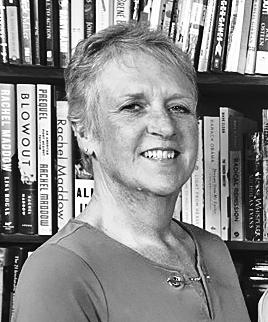
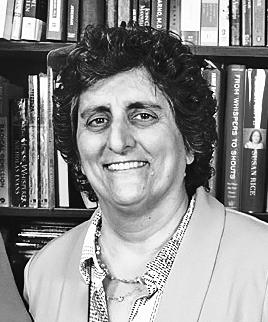


Beth A. Maturevich sold property at Hutchinson Lane, Lenox, to Kathie M. Johns and M&T Bank, trustees, Flynn NT, $3,000.
Kathie M. Johns and M&T Bank, trustees, Flynn NT, sold property at 16 Hutchinson Lane, Lenox, to Steven J. Ray, trustee, 16 Hutchinson Lane NT, $902,500.
Robert F. and Margaret A. Cimini, trustees, Robert F. Cimini RVT, and Robert F. and Margaret A. Cimini, trustees, Margaret A. Cimini RVT, sold property at Morgan Manor, Lenox, to Peter and Jessica St. Germaine, $280,000.
Ann L. Lowry sold property at 108 Kemble St., Lenox, to Christian L. Selke, $650,000.
PK Property Holdings LLC sold property at 165 Kemble St., Lenox, to Marshwinds Real Estate Company, $1,270,000.
Austin A. Frye sold property at 5 Shaylor Hill Road, Lenox, to Michael B. and Susan B. Reuben, $340,000.
William E. Parsley, trustee, Almic Nominee RT, sold property at Stone Ledge Road, Lenox, to Vitaly and Elena Nazarov, trustees the Vitaly Nazarov RVT, $235,000.
Paul E. Wilson and Kathleen A. Wilson sold property at 0 Beartown Mountain Road and Hupi Road, Monterey, to Steven Trifon and Rebecca Amsel, $120,000.
Leonard M. Garfinkel and Roslyn S. Garfinkel sold property at 0 Mount Hunger Road, Monterey, to Dennis S. Noskin and Cheryl Lynn Perlman Noskin, trustees of Dennis S. Noskin Revocable Trust, and as trustees of the Cheryl Lynn Perlman Noskin Revoca-
ble Trust, $199,000.
Roger M. Monk sold property at 32 Elephant Rock Road, Monterey, to Nancy A. Monk, trustee of Christopher Monk Nominee Trust, $275,000.
MOUNT WASHINGTON
Marcia Ann Inscore and Wendy Berning Sanchez sold property at 40 Club Grounds Road, Mount Washington, to Robert Cox & Ann Hartenstein and Louis Hutchins & Nina Silber, $565,000.
Michael J. Hale and Elizabeth Ann Andrus sold property at 14 Main Road, New Marlborough, to Lakeview Cottage LLC, $515,000.
David C. Filimon and Joanne T. Rittenhouse, trustees of Janice M. Filimon Irrevocable Living Trust, sold property at 219 Mill River Great Barrington Road, New Marlborough, to Mill River Red House LLC, $400,000.
Christine Z. Parton sold property at 100 Red Fox Drive, New Marlborough, to Terrance Jaeger Lush and Kristen Lynn Mallory, $575,000.
Phoebe Cottage LLC sold property at 110 Mill River Great Barrington Road, New Marlborough, to Green Turtle LLC, $562,000.
Bruce Poor and Vern Johnson sold property at 895 Rhoades & Bailey Road, New Marlborough, to 895R LLC, $315,000.
NORTH ADAMS
Harrison R. Schroeder and Lucia A. Randall sold property at 404 Church St. and Meadow Street Extension, North Adams, to Evan Garza and Michael Brodeur, $340,000.
Lawrence R. Williams and Teresa A. Pytko, personal rep. of Beverly Ann Williams, sold property at 320-326 State St., North Adams, to Peter L.
Morin, $5,000.
Carol Field and Peter L. Morin sold property at 320-326 State St., North Adams, to 320-326 State Street LLC, $290,000.
DSV SPV2 LLC sold property at 287 Houghton St., North Adams, to HLP Realty Holdings LLC, $52,500.
Kevin and Chad Chenail, successor trustees of the David W. Chenail Sr. 2023 RVT, sold property at 1054 State Road, North Adams, to David W. Chenail Jr., $400,000.
Stacey Hetherington sold property at 243 Union St., Unit 101, North Adams, to Pamela Into, $275,000.
CBD Real Estate LLC sold property at 1481 Massachusetts Ave., North Adams, to Herman Exterior Homes LLC, $100,000.
Christopher Schroeder and Arabella Liuba sold property at 112 North Holden St., North Adams, to Lane Remy Pelletier and Bethany Aaron Malachuk, $115,000.
Wigwam Western Summit LLC sold property at 2350 Mohawk Trail, North Adams, to 2350 Mohawk Trail LLC, $1,300,000.
Gary P., Marc R., Lauren Theresa, Craig T., and David A. Ghidotti, and Gail M. Cozzaglio sold property at 93 Franklin St., North Adams, to Frank Bond, $220,000.
Christina M. and Michael J. Kilroe Jr. sold property at 63 Francis St., North Adams, to Thomas B. and Cheryl D. Whalen, $226,000.
David P. Salomon, personal rep. of Nanette Salomon, sold property at 751 Mohawk Trail, Unit 2B, North Adams, to Paul O. Cote, $266,999.
Adam J. Ranney sold property at 1430-1432 South Church St., North Adams, to Jason M. Miner and Fallon A. Bouchard, $145,000.
Christopher D. Sumlin and Anthony




D. Collin sold property at 30 Hall St., North Adams, to James M. Pedro, $10,000.
OTIS
Gabriel Ignacio Penagaricano and Marie A. Robert sold property at 467 West Center Road, Otis, to Clinton Scott Herget, $430,000.
Peter M. Bakker and Peter M. Bakker, trustee, Peter M. Bakker 2018 Trust, sold property at 1 Big Island, Otis, to Richard N. Gaylord III and Cynthia P. Gaylord, $447,900.
Richard F. Montuori, trustee, Montuori FT, sold property at Algerie Road, Otis, to Jenna L. and James Crandall Jr., $30,000.
Mary B. Stapleton, personal rep. of the estate Estate of Brien J. McMahon, sold property at West Center Road, Otis, to John G. Palm, $28,000.
Elaine Davis, Raymond Mark Newbrough, Brenda Rudy, and Carol Vincent sold property at 35 South St., Otis, to Brian F. Battista and Brian J. Kolodziej, $135,000.
Haley Remodeling LLC sold property at 345 East Otis Road, Otis, to Michael Clingerman, $249,500.
Stephen J. Kurtz, trustee, Stephen J. Kurtz 2009 RVT Agreement, and Audrey S. Kurtz, trustee, Audrey S. Kurtz 2009 RVT Agreement, sold property at 339 Lakeshore Drive, Otis, to 339 Lakeshore LLC, $690,000.
Matthew T. Jablonski sold property at 140 Pease Road, Otis, to Eric D. and Iris E. Moore, $590,000.
Alexander and Lynn Bal sold property at Route 8, Otis, to Michael and Cathy Dellavalle, $100,000.
John E. Harwood sold property at North Main Road, Otis, to Robert B. and Deborah Moretz, $20,000.
John H., Paul R. and Judith Ann Young, personal reps. of the Estate of Ernest N. Young, sold property at 160
Chandler Road, Otis, to Michael L. and Rona B. Knight, $259,000.
Crystal Cantarella and Emily Taylor Lancaster sold property at 9 David Drive, Peru, to Kristine Hurley, $486,000.
Justin M. Holmes sold property at 31 South Road Extension, Peru, to Theodore T. MacVeigh and Amy T. Sarmento, $100,000.
Dean R. White and Kimberly A. Slater sold property at 139 South Road, Peru, to Timothy Davis, $188,000.
Valerie Rust sold property at 15 Curtin Road, Peru, to Fusion Solutions LLC, $60,000.
Barbara L. Goudey sold property at 36 Lakeway Drive, Pittsfield, to Tanisha Leigh Goines, $260,000.
JHM Security LLC sold property at 1801 East St., Pittsfield, to Keller East Realty LLC, $800,000.
U.S. Bank Trust NA, trustee, sold property at 456-458 Fenn St., Pittsfield, to Marcio Da Silva, $189,000.
Thomas J. and Tammy W. Court sold property at 257 Onota St., Pittsfield, to Sydney Carl, $255,000.
Anthony E. Satrape Jr. and Hailey A. Satrape sold property at 65 Hancock Road, Pittsfield, to Anne Elizabeth Stuart and Kenneth Earl Parker, $555,000.
John R. Rogers sold property at 80-82 Hawthorne Ave., Pittsfield, to Michael J. Normanly, $287,000.
Patrick J. Markham, Rosemarie A. Blake, Elaine M. Phillips, Michele L. Conroy sold property at 9 Grant St., Pittsfield, to Christopher John and Amanda Sue Markham, $127,500. Gregory P. and Jennifer D. Coscia sold
REAL ESTATE, Page 22





property at 107 Sampson Parkway, Pittsfield, to Michael E. and Barbara C. Ende, $374,900.
Lynne M. Witter, trustee, Deming Street NT, sold property at Division Street, Pittsfield, to Joshua De La Rosa and Jorge Gomez, $11,000.
Kathryn F. Bilia sold property at 12 Hopewell Drive, Pittsfield, to Bailey Groves, $260,000.
BPM 340 West LLC sold property at 340 West St., Pittsfield, to Hari Sant LLC, $1,030,000.
Christopher Colby and Ashley Drake sold property at 18 Greenings Ave., Pittsfield, to Robert Failla, $397,500.
Brian D. Acker sold property at 3 Aspen Way, Pittsfield, to William Arthur and Lisa Jeanne Korte, $617,500.
Robert R. and Marie J. Mole sold property at 52-54 Stratford Ave., Pittsfield, to Sandi Chen, $369,500.
Evan W. Bellmore and Kayla Berniche sold property at Mountain Drive, Pittsfield, to Anthony R. DiCicco, $28,000.
John E. Troop Jr. and Wende J. Troop sold property at 551 Onota St., Pittsfield, to James E. Benlien, $235,000.
Patricia C. DeGroat sold property at 71 Pomeroy Ave., Pittsfield, to Alexis Fernando Padilla Uribe and Maria Camila Maldonado Gomez, $300,000.
Rebecca A. Schmitt sold property at 50 New Hampshire Ave., Pittsfield, to Michael Harper, $222,000.
160-189 North St. Pittsfield MA LLC sold property at 42-44 Hamlin St., Pittsfield, to Marco Rene Soasti and Maria Jose Ortega Zapata, $305,000.
Kristine Hurley sold property at 46 Kensington Ave., Pittsfield, to Kristen Shepardson, $300,000.
Kristen Shepardson sold property at 123 Highland Ave., Pittsfield, to Kevin Rodriguez and Caroline Eldred, $445,000.
Candace A. Baker, Michele M. Stevens, Tami Sue Stevens-Goerlach, personal reps. of the Estate of Beverly J. Stevens, sold property at 23 Appleton Ave., Pittsfield, to LND Investments LLC, $90,000.
William M. Dougherty, trustee, Clifford Street NT, sold property at 8 Clifford St., Pittsfield, to Guy A. Wright and James E. Foley, $158,000.
Maru Associates LLC sold property at 101 Lyman St., Pittsfield, to Timothy H. Litz Jr., $283,000.
David P., Robert D., Beth A., and Catherine Barzottini sold property at 845 East New Lenox Road, Pittsfield, to Beth A. Barzottini, $265,000.
Jacob L. and Kelsey N. Brown sold property at 261-263 Lenox Ave., Pittsfield, to Nathan T. Myers, $260,000.
Russell M. and Nancy E. Quetti, trustee, Russell and Nancy Quetti Revocable Trust, sold property at 14 Faucett Lane, Pittsfield, to Patrick C. and Bethany M. Jamross, $600,000.
Guilbert G. and Joanne C. Twiss sold property at 157 Benedict Road, Pittsfield, to Kimberly A. Talora, $319,000.
Luigi Ottaviani and Yuchen Namkhai sold property at 132 Danforth Ave., Pittsfield, to Charles and Kathleen Singleton, $170,000.
Pittsfield Welding Supply Inc. sold property at 1478 East St., Pittsfield, to H.A. O’Neil Real Estate
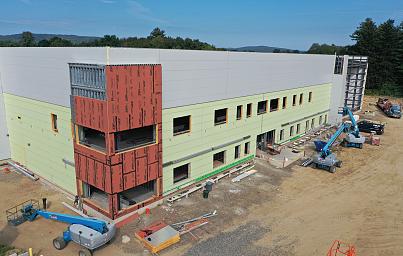
LLC, $420,000.
Lisa A. Hill sold property at 408 Pomeroy Ave., Pittsfield, to Patricia Trotti, $530,000.
Marcio Jaoa Da Silva and Carlos Eduardo Rigonato sold property at 6 Cherry St., Pittsfield, to Ashley Machado Senegaglia, $330,000.
Angela Carnevale sold property at 35 Buel St., Pittsfield, to Louis Martial Boua Anwobor, $250,000.
Maurice E. Callahan Jr., Timothy J. Callahan, Daniel E. Callahan, and James P. Callahan sold property at 6 Callahan Drive, Pittsfield, to Taylor Bartlett, $240,000.
Maurice E. Callahan Jr., Timothy J. Callahan, Daniel E. Callahan, and James P. Callahan sold property at West Housatonic Street, Pittsfield, to Taylor Bartlett, $105,900.
555 East Street Realty LLC sold property at 75 Wellington Ave., Pittsfield, to Laura J. Lopez Manosalva, $163,000.
Mark Davis sold property at 15 Williamsburg Terrace, Pittsfield, to Daniel Roy and Danielle Knutson, $325,000.
Townsquare Media Pittsfield LLC sold property at 769 West Housatonic St., Pittsfield, to Vertical Bridge AM II LLC, $36,800.
Susan Abby Sussman, trustee, Susan Abby Sussman Trust, sold property at 31 Alpine Trail, Pittsfield, to Nicholas A. Loring, $724,500.
Carlos Rigonato and Marcio Joao Da Silva sold property at 52-54 Merriam St., Pittsfield, to Anthony Escudero, $297,000.
JDL Real Estate Unlimited LLC sold property at 19-21 Springside Ave., Pittsfield, to C&A Rentals Management LLC, $405,000.
Charles W. and Diane S. Cook sold property at 65 Essex St., Pittsfield, to Glen Arseneau, Sabrina Damms and Jennifer Czarnecki, $375,000.
Alberto Taveras and Blary Sanchez sold property at 68 Daniels Ave., Pittsfield, to Braiancq Mauricio Cuenca Vasquez, $250,000.
Heidi J. Sammon sold property at 18 Lucille St., Pittsfield, to Samantha and Breanna Bolio-Kearns, $271,000.
BT Holdings LLC sold property at 162 Gale Ave., Pittsfield, to Lorenzo & Sons Trucking & Excavating Inc., $100,000.
Berkshire County Sheriff’s Department sold property at 79 Nancy Ave., Pittsfield, to Daniel A. Diermeier, $100,000.
Joanne Daly, personal rep. of the Estate of Robert Stracuzzi, sold property at 3 Clarendon St., Pittsfield, to Turnkey Rentals LLC, $120,000.
Deborah L. Bliss sold property at 20-22 Spring St., Pittsfield, to Richard Byajuta, $220,000.
Steven E. Como sold property at 27 Austin Ave., Pittsfield, to Matthew T. Duane, $160,000.
David J. and Ann-Marie R. Harris sold property at 54 New Hampshire Ave., Pittsfield, to Devon M. Johnston, $249,900.
9 Dalton Avenue LLC sold property at 9 Dalton Ave., Pittsfield, to 9 Dalton Ave. LLC, $700,000.
Joseph J. and Ann W. Murray sold property at Swamp Road, Richmond, to Amanda L. and Edward D. Hughes, $82,000.
Mark M. Whitney, personal rep. of the Estate of Jane M. Whitney, sold property at 251 Yokun Road, Richmond, to Jonathan Estrin and Lois Spencer Humphrey, $605,000.


Stephen J. Kurtz, trustee of Stephen J. Kurtz 2009 Revocable Trust Agreement, and Audrey S. Kurtz, trustee of Audrey S. Kurtz 2009 Revocable Trust Agreement, sold property at 339 Lakeside Drive, Sandisfield, to 339 Lakeshore LLC, $690,000.
Lindsay Parker, Nina Kanter and Peter B. Kanter, co-trustees for Kanter Living Trust Survivors Share Dated 1-6-2012, and also as co-trustees of Kanter Living Trust Family Share Dated 1-6-2012 and Gerald Dryansky sold property at 0 Sears Road, Sandisfield, to Caroline M. McCarthy and Spencer H. Lapp, $115,555.
Laurel J. Fuller and Thomas N. Gezotis III sold property at 122 Sandisfield Road, Sandisfield, to Peter Baiamonte, $257,000.
Jeffrey Gulotta and Melinda Gulotta sold property at 222 Water Farm Road, Sheffield, to Theodore H. Feindt IV and Emma Lee Wilber, $385,000.
Philip D. Scholl and Scott E. Powell, trustees of Scholl Powell 2023 Joint Trust, sold property at 575 Sheffield Plain, Sheffield, to Helen Selzer, trustee of Helen Selzer Revocable Living Trust, $560,000.
Little Johnny Mountain LLC sold property at 301 Miller Ave., Sheffield, to David Friedman and Kimberley Andrews, $510,000.
PHH Mortgage Corporation and Leslie Sylvan sold property at 175 Main St., Sheffield, to PHH Mortgage Corporation, $616,121.24.
Antony W. Kalm sold property at 20 Ice Glen Road, Stockbridge, to Daniel E. Dietch and Dana R. Kulvin, $950,000.
Joan E. Nimmo sold property at 42 Lake Drive, Stockbridge, to Thomas A. and Carrie L. Kenney, $950,000.
Morningside Properties LLC sold property at 128 Jerusalem Road, Tyringham, to Rachel Lynn Kalin, trustee, 128 Jerusalem Road Realty Trust, $3,995,000.
Nicholas DelGreco sold property at Smith Road, West Stockbridge, to Curt George Wilton III and Gabrielle Knight, $185,000.
Mark A. Tabs sold property at 4 Samantha Lane, West Stockbridge, to Nancy P. Tabs, $359,000.
Edward A. Loring and Marion B. Loring sold property at Silver Mine Lane, West Stockbridge, to Robert W. Trask and Elizabeth A. Korona, $150,000.
WILLIAMSTOWN
Derek Magnette, Janamarie Sunkle and Modestino Conte sold property at 1042 North Hoosac Road, Williamstown, to Ahna R. Resendez, $79,900.
Pamela R. Green, personal rep. of Carole M. Grant, sold property at 977 Simonds Road, Williamstown, to Legend Interests Inc., $230,000. Timothy J. and Monique D. Duffy sold property at 378 North St., Williamstown, to Erik Reardon and Meghan Willis, $324,500.
Martha W. Montgomery sold property at 1096 North Hoosac Road, Williamstown, to Bedre W. and Amy Theresa Montgomery-Nassif, $222,000.
Margaret E. Daniels sold property at 813 Simonds Road, Williamstown, to Christopher and Morissa Beaumont, $165,000.
WINDSOR
Keith A. and Dalys Rehbein sold property at 249 Bates Road, Windsor, to Mitchell Slamowitz and Tanya Dworjanyn, $1,479,000.
FT — Family Trust
LLC — Limited Partnership
LT — Life Trust
NT — Nominee Trust
RET — Real Estate Trust
RT — Realty Trust
RVT — Revocable Trust
The real estate transactions are provided by the Middle Berkshire, North Berkshire and South Berkshire Registry of Deeds offices.


Pittsfield Cooperative Bank welcomes Gina Vallone to its retail banking team as a vice president and branch manager of its Dalton Avenue location.
Vallone has significant experience in branch management, financial advising, personal insurance sales and management, relationship management, and customer service.
Vallone joins Coop Bank after working for the previous 15 years at Lee Bank in their retail and community banking departments. For the last five years, she has been managing Lee Bank’s Pittsfield and Lenox branches. Prior to banking, she worked in personal insurance line sales and customer relations with Minkler Insurance Agency.
Vallone has a bachelor of science in business administration from the Massachusetts College of Liberal Arts. She currently serves on the board of directors of the Elizabeth Freeman Center. She was born and raised in Berkshire County and currently resides in Pittsfield with her family.

Joseph Ting has joined Boyd Biomedical as vice president of Design by Boyd. In his new role, Ting is responsible for the division Design by Boyd, which provides end-to-end design and development services for biomedical devices. He has joined the company’s Senior Leadership Team and reports to the chief commercial officer.
The appointment will support the company’s strategic growth plan by strengthening its suite of growth services for entrepreneurs and companies commercializing biomedical innovations. Clients can accelerate their product design, manufacturing and marketing initiatives by leveraging these services.
Ting is an experienced engineering professional and executive leader with extensive experience in the medical device and biotechnology industries. He has over 30 years of experience and a proven history of professional success.
Before joining Boyd Biomedical, he was the director of R&D at Blossom Innovations. He was also a founder of Catapult Product Development and is an adjunct professor at the Stevens Institute of Technology.
Boyd Biomedical is a growth partner for medical device and life sciences companies.


Berkshire Community College announces the addition of seven faculty/staff members, four promotions and four title changes.
Jacob Barnett has been hired as assistant professor of biology. He comes to BCC from University of Massachusetts Amherst, where he completed a PhD in organismic and evolutionary biology in December 2023 after studying wild tomato plants for his dissertation. Previously, he worked as a middle and high school biology teacher in the Boston suburbs for six years.
Barnett also holds a master of education degree in science education from Lesley University and a bachelor of science degree in biological sciences from Cornell University.
Destinee Branch has been hired as Accountant I. She oversees the accounts payable process, ensuring the timely payment of the college’s bills.
Originally from the western United States, Destinee previously worked as the office manager at an auto dealership before relocating to the Berkshires to live with family in Williamstown.





Meghan Donnelly has been hired as essential needs coordinator — community/ outreach counselor. She earned a master’s degree in school counseling from Westfield State University and a bachelor of arts degree in Spanish and English from Elms College.
Prior to joining BCC, she worked as a school counselor with the Pittsfield Public Schools. Previously, she was a Spanish teacher, a volunteer with AmeriCorps and a college affordability adviser for high school seniors. Donnelly volunteered with the Notre Dame Mission Volunteers International, where she worked as a family gardens project manager.
Jack Golden has been hired as assistant professor of theater. He holds a master of fine arts in theater (scenic design) from the University of Maryland, College Park. Previously, he was an adjunct professor at the University of the Arts in Philadelphia and at Ramapo College of New Jersey in Mawah.
Golden’s work has been seen off and off-off Broadway as well as on tour and at regional theatre companies. Most recently, Golden is designing the set for “Spells of the Sea,” a musical, which will open at the Family Theatre at the Kennedy Center in Washington this fall. Along with his own work, he regularly assists nationally and internationally known designers at some of the most acclaimed regional theatre companies in the country.
Tsz Fun Hung has been hired as assistant professor of mathematics.
Prior to joining BCC full-time, he served as an adjunct instructor at the University at Buffalo and as a visiting assistant professor at Fort Lewis College. Hung earned his PhD in mathematics from University at Buffalo, as well as a master’s degree in philosophy and bachelor of science degree in mathematics from the Hong Kong University of Science and Technology.
Kathryn Lally has been hired as assistant professor of human services. She holds a master of social work degree and a master of public health degree from the George Warren Brown School of Social Work at Washington University, and a bachelor’s degree in psychology from Clark University.
Previously, Lally was clinical assistant professor in St. Ambrose University’s social work program. She was also a teaching assistant in the psychology program at Washington University. Her nonteaching experience includes work with the Moline Police Department through the Center for Youth and Family Solutions and several roles at the Yale Child Study Center.
Denise Reid has been hired as director of grants development and administration. She comes to BCC from Framingham State University, where she managed over $23 million in grants, ensuring accurate budget analysis, monitoring and reporting. Reid has extensive
experience in the education sector and a strong track record in securing competitive grants.
PROMOTIONS
Jillian Albano, formerly assistant professor — nursing, is now associate professor — nursing.
Jennifer Charbonneau, formerly assistant professor — nursing, is now associate professor — nursing.
Gabriela Sheehan, formerly paraprofessional cohort mentor, is now director of TRIO.
Ann Stevens, formerly human resources operations and benefits manager, is now assistant director of human resources.
TITLE CHANGES
Sarah Burdick, formerly special programs coordinator — academic success/ career coach, is now an academic/career counselor.
Cheryl Mirer, formerly special programs coordinator — academic success/career coach, is now an academic counselor.
Eric Nystrom, formerly special programs coordinator — academic success/career coach, is now an academic counselor.
Addie VanDeurzen, formerly special programs coordinator — CTE linkage coordinator, is now CTE linkage and concurrent enrollment coordinator.
BCC, located 4 miles miles from the center of Pittsfield is a fully accredited community college offering associate degree and certificate programs to approximately 2,000 enrolled students per year.

Berkshire Bank has promoted Jason Niles to senior vice president, MyBanker team leader.
He will oversee the company’s MyBanker service, which provides free financial counseling to help
consumer, business and nonprofit customers navigate the next stage in their financial life.
Niles has been with Berkshire Bank for more than 15 years, most recently as first vice president, relationship wto that, he held roles at Berkshire as vice wpresident, relationship manger and branch manager.
A resident of South Hadley, Niles is a veteran of the U.S. Air Force and was recognized as part of the 40 Under 40 Class of 2018 by Business West. He is active in his communities, serving on the boards of Revitalize CDC in Springfield and the Massachusetts Veterans Chamber of Commerce. He earned his bachelor’s degree in business administration and finance from the University of Phoenix.
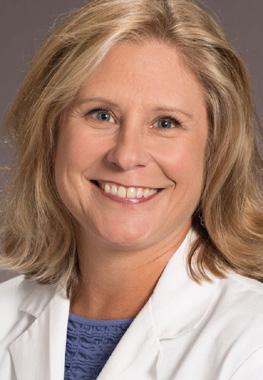
The Center for Communication in Medicine has announced the election of Dr. Allison P. Niemi, M.D., to the board.
Niemi is a family medicine physician with Southwestern Vermont Medical Center and medical director at the SVMC Pownal Campus. She is physician consultant for Bennington Project Independence and sits on the Southwestern Vermont Medical Center board of governors.
Her decades of experience in family medicine and geriatric care, leadership roles and numerous volunteer positions with community health organizations offer a depth of perspective that will be an asset to the organization.
Niemi joins the sitting board of Micheal Keane, Dr. Michael Welther, Scott J. Burg, Vicki Corey Dejnozka, Laura Moore, Beth Newman, Sarah Perrin, and Constance “Consie” West.
To learn more about the organization and its programs, visit SpeakSooner.org.



